
75 Myths Examples

Myths are traditional stories passed on in the form of folklore or cultural storytelling . They often represent the fundamental and philosophical beliefs of the community, connecting generations through metaphorical but impactful narratives (Doty, 2014).
These tales usually involve gods, heroes, or supernatural beings, and are intricately woven with cultural, religious, and historical threads of the community they originate from.
The term Myth comes from Greece and there are many Greek mythologies. But, there are myths from just about every known culture.
Scholars such as Roland Barthes argued that myths are a type of communication, acting as a medium to convey complex ideas or values in a simpler and more digestible form (Barthes, 2013).
Myths Examples
- The Tortoise and the Hare: A tortoise, tired of the hare’s boasting, challenges him to a race. The hare, confident of winning, takes a nap mid-race, while the tortoise perseveres and wins. This Aesop’s fable demonstrates that slow and steady can indeed win the race.
- Pandora’s Box: In Greek mythology, Pandora, the first woman on earth, was given a box by Zeus, but was instructed never to open it (Rose, 2010). Overcome by curiosity, Pandora finally opened the box, inadvertently releasing all manner of evils, diseases, and pain into the world. The only thing left inside was Hope, symbolizing humanity’s solace in the face of adversity.
- The Journey of Odysseus: Homer’s epic, ‘The Odyssey’, narrates the 10-year journey of the Greek hero Odysseus as he strives to return home after the Trojan War. He faces numerous obstacles, including entanglements with mythical creatures like the Cyclops and the Sirens, the wrath of the sea god Poseidon, and the temptation of the goddess Calypso. Finally, Odysseus returns to Ithaca, reclaims his throne and reunites with his wife Penelope.
- Icarus and Daedalus: This myth tells the tragic tale of Icarus and his father Daedalus, trapped in King Minos’ labyrinth. Daedalus devised wings made of wax and feathers in order for them to escape, but advised Icarus not to fly too close to the sun. Ignoring this warning, Icarus flew too high, melting his wings and consequently fell into the sea and drowned.
- King Midas and the Golden Touch: King Midas is granted a wish by Dionysus to have everything he touches turn to gold. Initially joyful, his happiness turns to horror when he realizes even his food and his beloved daughter transform to gold, teaching a lesson about greed and its negative consequences.
- The Sword Excalibur: From Arthurian legends, Excalibur is the famed sword of King Arthur, gifted by the Lady of the Lake. The sword bestowed great power and victory in battles, symbolizing Arthur’s rightful sovereignty over Britain. Upon Arthur’s death, the sword was reportedly returned to the Lady of the Lake, disappearing forever.
- Medusa and Perseus: The Greek hero Perseus slew Medusa, the Gorgon who could turn anyone who looked at her into stone. Assisted by gifts from the gods, including a reflective shield, Perseus beheaded Medusa without directly looking at her. He later used Medusa’s head as a weapon in various battles, including the rescue of Andromeda from a sea monster.
- The Creation Myth of Japan: The Shinto creation story narrates that the Japanese island was created by the divine couple, Izanagi and Izanami. They created the islands of Japan by dipping a jeweled spear into the ocean and the drops solidified to form the islands. This myth created a divine linkage to the Imperial house of Japan, strengthening its status and rule.
- Thor’s Journey to Utgard: In Norse mythology, Thor, the god of Thunder, embarked on a journey to the giant city of Utgard. During the journey, Thor and his companions engage in several contests, only to realize they have been tricked by magic illusions of the giant king. This is one of the rare instances where Thor’s might does not guarantee victory, demonstrating the occasional supremacy of wit over strength.
- Osiris and Isis: In ancient Egyptian myths, Osiris, the god of the underworld, was murdered and dismembered by his brother, Seth. Isis, Osiris’ wife, collected all of his pieces and through magic, managed to revive him, albeit briefly. This act allowed Isis to conceive their son, Horus, and solidified Osiris’ role as the ruler of the Underworld.
- Tower of Babel: In biblical mythology, humanity, speaking a single language, planned to construct a tower reaching heaven to make themselves famous. God disrupted their project by confounding their speech, so they couldn’t understand each other, leading to the project’s abandonment and people scattering over the earth.
- Robin Hood: In English folklore, Robin Hood is a highly skilled archer and outlaw, who, with his band of merry men in Sherwood Forest, fought against injustice and tyranny, redistributing the wealth from rich nobles to the poor, establishing ‘robbing from the rich to give to the poor.’
- The Labors of Hercules: Hercules, a demigod of ancient Greek mythology, was commanded by King Eurystheus to perform 12 daunting tasks as a form of punishment for killing his wife and children in a fit of madness induced by Hera. These included slaying fearsome beasts like the Nemean lion and the nine-headed Hydra, and bringing back the golden apples of the Hesperides. These formidable undertakings tested Hercules’ strength and bravery, further immortalizing him in Greek mythology.
- Rome’s Founding by Romulus and Remus: In Roman mythology, the twins Romulus and Remus, raised by a she-wolf, are the founders of Rome. A rift grew between them over where to build the city, ultimately leading Romulus to kill Remus. Hence, Romulus became the first king of Rome, lending his name to the city he founded.
- The Fall of Troy: According to Homer’s Illiad, this myth tells how the Greeks besieged Troy for ten years without success. The war eventually concluded when the Greeks built a huge wooden horse, hid soldiers inside, and tricked the Trojans into bringing it within the city walls.
- Arachne and Athena: Arachne boasted that her weaving skill was greater than Athena’s, who challenged her to a contest. Athena turned Arachne into a spider when Arachne’s tapestry depicted the gods’ misdeeds. The story suggests that one should be aware of hubris and respect the gods.
- Narcissus and Echo: Narcissus rejected the nymph Echo’s love, leading to her fading away and only her voice left. Nemesis cursed Narcissus to fall in love with his reflection. He pined away at his own reflection, turning into a flower, signifying the perils of self-obsession.
- Prometheus and the Gift of Fire: Prometheus stole fire from the gods to give to humans, greatly aiding their progress. For this betrayal, Zeus punished Prometheus by chaining him to a rock where an eagle daily ate his liver, which grew back to be eaten again, symbolizing the eternal torture of defiance against the gods.
- Orpheus and Eurydice: Orpheus descended into the underworld to bring his wife Eurydice back from death with his enchanting music. Hades agreed, but on the condition that Orpheus must not look back at her until they reached the sunlight. Near the surface, Orpheus turned too soon, causing Eurydice to vanish forever, emphasizing patience and faith.
- The Myth of Sisyphus: For his deceit, Sisyphus was condemned by the gods to eternally roll a boulder up a hill, only for it to roll down when it nears the top. This tale exhibits the theme of eternal suffering and futile labor.
- Isis and the Seven Scorpions: In Egyptian mythology, seven scorpions protected the goddess Isis and her son Horus from Set. An ungrateful wealthy woman shut her door to them, and a scorpion stung her son. Despite this, Isis healed the boy, showing divine magnanimity and the potential dangers of ingratitude.
- Persephone and the Pomegranate Seeds: Persephone, daughter of Demeter, was abducted by Hades to be his wife. Demeter refused to let anything grow until her daughter was returned. A deal was struck: Persephone would live six months on earth (spring and summer), and six months in the underworld (fall and winter) because she ate six pomegranate seeds, symbolizing the change of seasons.
- Daedalus and the Minotaur: Daedalus, a skillful architect, built the labyrinth for King Minos to house the Minotaur. When Minos imprisoned Daedalus and his son Icarus, Daedalus constructed wings for escape. The story warns about the repercussions of human pride and the dangers of messianic ambitions.
- The Legend of Faust: Faust, driven by dissatisfaction and desire for infinite knowledge and pleasures, makes a deal with the demon Mephistopheles, offering his soul in exchange. Despite the worldly experiences he gains, Faust realizes the empty nature of hedonism and selfish ambition, providing a caution about the cost of compromising one’s moral integrity.
- Judgment of Paris: Paris, a Trojan prince, was asked to decide who was most beautiful among the goddesses Hera, Aphrodite, and Athena. Each offered a bribe, with Paris choosing Aphrodite’s promise of the world’s most beautiful woman, Helen, sparking the Trojan War, highlighting how personal decisions can have wide-ranging consequences.
- Dionysus and the Pirates: Sea pirates kidnapped Dionysus, the Greek god of wine, mistaking him for a prince. When they didn’t release him despite his warnings, Dionysus transformed into a lion, frightened them, and turned them into dolphins. This myth underscores the idea of divine retribution and the consequences of hubris.
- The Taming of the Shrew: In this Shakespearean tale, Katherina, a woman with a sharp tongue and fierce demeanor, is pursued by Petruchio, who seeks her substantial dowry. Petruchio ‘tames’ her through various means, indicating a commentary on gender roles and societal expectations.
- Atlantis: The story of a monumental city of unparalleled wealth that fell out of favor with the gods and sank into the sea in a single day. The story of Atlantis, first introduced by Plato, serves as a warning to human societies about the dangers of hubris.
- The Odyssey Sirens: In Homer’s Odyssey, Odysseus and his men must pass by the alluring sirens whose beautiful singing lures sailors to their death. Odysseus fills his men’s ears with beeswax and binds himself to the ship’s mast to resist the temptation, showcasing the theme of self-control and quick-wittedness in the face of danger.
- The Sword in the Stone: The legend has it that the future king could be identified by his ability to pull an enchanted sword from a stone. The young Arthur, unknowingly of royal blood, does so easily, suggesting that leadership comes from divine fate and righteousness rather than brute force.
- Beowulf: The epic poem Beowulf narrates the story of Beowulf, a hero who slays the monster Grendel and Grendel’s mother to protect the Danes. He later becomes a wise and popular king, underlining themes of bravery, loyalty, and the relationship between the king and his people.
- Loki’s Punishment: In Norse mythology, after causing the death of Baldr, the god of light and purity, Loki was severely punished. He was bound with the entrails of his son, with a serpent dripping agonizing venom onto him, embodying the theme of the retribution that is due for malevolent mischief.
- Theseus and the Minotaur: Theseus vowed to kill the Minotaur, a creature with a man’s body and a bull’s head, kept in the Labyrinth. With Ariadne’s help, he navigated the Maze, slain the Minotaur, and escaped, emphasizing courage and the triumph of heroism over monstrous evil.
- The Myth of the Phoenix: The Phoenix is a mythical bird that at the end of its life-cycle self-immolates and is then reborn from the ashes, symbolizing rebirth and cyclic renewal.
- The Tale of Genji: Often considered the world’s first novel, it is a Japanese classic about the life of Genji, a nobleman of high rank and his romantic relationships; it provides insights into the culture and aesthetics of Heian Japan.
- The Birth of Venus: In Roman mythology, Venus, the goddess of love, was born from the sea foam after Saturn castrated his father Uranus and threw his genitals into the sea, symbolizing beauty emerging from chaos.
- The Rainbow Serpent: An Aboriginal Australian myth tells of the Rainbow Serpent, a powerful creator deity responsible for shaping the earth during a period known as Dreamtime, signifying reverence for the natural world and its cyclical processes.
- Achilles Heel: Demigod warrior Achilles was invulnerable except for his heel, his mother Thetis having held him by his heel while dipping him into the River Styx. During the Trojan War, he was killed by an arrow to his heel, coining the term “Achilles heel” for a single point of weakness.
- Jason and the Golden Fleece: Jason and his crew, the Argonauts, embarked on a perilous journey to retrieve the Golden Fleece, symbolizing authority and kingship. This journey involved a number of trials and tribulations, exemplifying heroic strength, intellect, and persistence.
- The Epic of Gilgamesh: An ancient Mesopotamian tale about King Gilgamesh and his companion Enkidu. Their adventures include battling gods and monstrous beasts, seeking immortality, and facing human mortality, presenting themes of friendship, the human condition, and death’s inevitability.
- The Legend of Quetzalcoatl: In Aztec mythology, Quetzalcoatl the Feathered Serpent, was a god of wind, air, and learning who brought them the benefits of civilization, including the calendar and maize, symbolizing enlightenment and spiritual transcendence.
- Tristan and Isolde: A tragic romantic tale of knight Tristan and Irish princess Isolde who fall in love after accidentally consuming a love potion. It involves themes of love, betrayal, and tragic destiny, similar to Romeo and Juliet.
- King Solomon’s Mines: An adventure novel by H. Rider Haggard tells of a search of an unexplored region of Africa by a group of adventurers led by Allan Quatermain for the missing brother of one of the party, and the legendary wealth said to be concealed in the mines of King Solomon, portraying the clash of cultures and the allure of exploration.
- Sinbad the Sailor: This Middle Eastern tale narrates the adventures of a merchant named Sinbad, who embarks on seven fantastical voyages across the sea, meeting mythical creatures and overcoming tremendous challenges along the way, illustrating bravery and the wonder of exploration.
- The Tale of Cupid and Psyche: In this Roman myth, Psyche, a mortal woman of extraordinary beauty, wins the love of Cupid, the god of love, but loses him when she betrays his trust. She performs a series of impossible tasks set by Cupid’s mother, Aphrodite, to win back her beloved, demonstrating the trials of love and the strength of human spirit.
- The Legend of the Loch Ness Monster: This Scottish legend tells of a large creature that supposedly inhabits Loch Ness. Sightings—real and fictitious—of “Nessie” have fascinated people worldwide, embodying the human fascination with the unknown and unexplained.
- The Four Dragons: This Chinese legend tells the story of four dragons that, against the Jade Emperor’s orders, brought rain to drought-stricken lands, for which they were trapped underground as four rivers. The story exemplifies courage and self-sacrifice for the greater good.
- The Tale of El Dorado: Originating in 16th-century Colombia during the Spanish conquest, this myth describes a city of immense wealth, where the king covers himself with gold dust. Despite numerous explorations, El Dorado has never been found, highlighting humankind’s lust for wealth and the perils of greed.
- The Legend of Sleepy Hollow: This American folktale by Washington Irving narrates the story of Ichabod Crane, a superstitious schoolmaster who encounters a spectral headless horseman, emphasizing the power of fear and imagination.
- The Hanging Gardens of Babylon: This account describes an incredible terraced garden, said to be built in Babylon by King Nebuchadnezzar II for his wife, Amyitis. It’s one of the Seven Wonders of the Ancient World, though no archaeological evidence has been found, illustrating the grandeur and marvel of ancient civilizations.
- The Children of Lir: In this Celtic myth, Lir’s children are changed into swans by their jealous stepmother for 900 years, symbolizing love’s endurance and the transformative power of song.
- The Monk and the Yaksha: In this Indian myth, a monk is questioned about human morality and conduct by a Yaksha, a nature spirit. The insightful responses of the monk demonstrate the depth of wisdom present in ancient Indian culture.
- The Song of Roland: This French epic narrates the tale of Roland and his fellow Paladins who died in the Battle of Roncevaux, emphasizing chivalry and heroic bravery.
- The Legend of the Phoenix: This Greek myth tells of a purple and gold bird of unparalleled beauty that can live up to 500 years before it combusts, to then be reborn from its ashes, symbolizing renewal and the cyclical nature of life.
- The Story of King Arthur: In various British legends, Arthur is a noble king, who with his Knights of the Round Table, defender of the realm and upholder of chivalry, exemplifying courage, honor, and leadership.
- Cinderella: The folk tale tells of a kind-hearted girl mistreated by her stepmother and stepsisters. With the aid of her fairy godmother, she attends a royal ball, captivates the prince, but leaves at midnight, losing a glass slipper. The prince finds her through the slipper, which fits only her, and they live happily ever after.
- Sleeping Beauty: Princess Aurora is cursed at birth by an evil fairy to die by a spindle prick on her sixteenth birthday. A good fairy modifies the curse to a deep sleep, which she eventually falls into. Eventually, she is awakened by a prince’s kiss, which breaks the spell.
- Little Red Riding Hood: The heroine, clad in a red cape, is en route to her sick grandmother’s house with food. She encounters a deceitful wolf who races her to grandma’s, eats the grandmother, and disguises himself as her. The wolf tries to eat Little Red Riding Hood, but a passing hunter rescues them, and they all live happily.
- The Ugly Duckling: A duckling, distinct from his siblings with his ungainly appearance, is ridiculed. He leaves his home, experiences hardship, and loneliness. Eventually, he matures into an elegant swan, recognized and praised for his beauty, highlighting the idea of personal transformation and growth .
- The Pied Piper of Hamelin: Hired to rid Hamelin of rats, the Pied Piper uses enchanting music to lead the rats away to drown. When the town refuses to pay him, he uses his music to lead the children away, never to return – serving as a warning about the consequences of breaking promises.
- Alice In Wonderland: Alice falls into a rabbit hole, leading her to Wonderland, a whimsical world with peculiar, anthropomorphic creatures. Alice’s adventures involve strange encounters and challenges. The story is known for its exploration of logic, the fantastical, and the concept of growing up.
- Goldilocks and The Three Bears: In this fairy tale, Goldilocks, a young girl, stumbles upon a house belonging to three bears. Finding their porridge, chairs, and beds, Goldilocks tests out each one, finding one always “just right”. She is discovered by the bears, causing her to flee, teaching the lesson about respecting others’ property.
- Three Little Pigs: The tale is about three pigs each building a house of different materials (straw, sticks, and bricks). A wolf blows down the first two pigs’ houses, but the third pig’s brick house withstands his efforts. The tale promotes the virtues of planning and hard work.
- Snow White and The Seven Dwarfs: Snow White, of incomparable beauty, is pursued by a jealous queen. She takes refuge with seven dwarfs. The queen, disguised as an old hag, poisons Snow White, putting her in a deathlike sleep, broken by a prince’s kiss. They marry, marking a happy ending.
- Jack and The Beanstalk: Jack, a poor boy, trades his family’s last cow for magic beans that grow into a giant beanstalk. Climbing it, he encounters a ferocious giant with treasures, which he steals. He kills the pursuing giant by cutting down the beanstalk and lives prosperously thereafter.
- Aladdin and The Magic Lamp: Aladdin, a poor youth, discovers a magic lamp containing a powerful genie who grants him wishes. Using the genie’s power, Aladdin becomes rich, defeats the wicked sorcerer, and marries the princess, underscoring that humility and honesty are vital virtues.
- Rapunzel: Imprisoned in a tower by a witch, Rapunzel, with exceptionally long hair, uses it to let a prince climb up to her. When the witch discovers this, she cuts Rapunzel’s hair and banishes her. The prince finds Rapunzel, her tears restore his sight (blinded in his escape from the witch), and they reunite with their children.
- The Frog Prince: A princess befriends a frog, who is actually a prince under a spell that can be broken only with a kiss from a princess. Initially reluctant, the princess eventually kisses the frog, breaking the spell. The story signifies that appearances can deceive, and true value lies within.
- The Fisherman and the Golden Fish: A fisherman catches a golden fish who promises to fulfill his wishes in exchange for its freedom. The fisherman’s wife’s greed grows with each granted wish, leading to their downfall when the fish revokes everything due to their excessive greed.
- Beauty and the Beast: Belle, a beautiful girl, is taken prisoner by a Beast in his castle. Ignoring his gruesome exterior, she learns to appreciate his kindness. She falls in love with him, which breaks the spell on the Beast, making him a handsome prince again, highlighting the theme of inner beauty.
- Rumpelstiltskin: A miller lies to a king that his daughter can spin straw into gold. The mysterious Rumpelstiltskin helps her, demanding her firstborn in return. The queen (the daughter) defeats Rumpelstiltskin by learning his name, revealing the importance of truth and keeping promises.
- The Boy Who Cried Wolf: A shepherd boy repeatedly tricks nearby villagers by crying out that a wolf is attacking his sheep. When a wolf eventually comes, the boy’s cries are ignored, and he loses his sheep. The tale emphasizes the destructive consequences of lying.
- The Legend of the White Snake: A Chinese tale of a powerful white snake demon Bai Suzhen who transforms into a beautiful woman and falls in love with a mortal man, Xu Xian, serves to comment on love transcending supernatural boundaries and human prejudice.
- The Tale of Urashima Taro: This Japanese folk tale narrates the story of a fisherman, Urashima Taro, who saves a turtle and is rewarded by a visit to the Dragon Palace under the sea. On his return, he discovers 300 years have passed, implying themes of isolation, reward, and the relentless passage of time.
- Legend of Fionn mac Cumhaill: This Irish myth tells of the giant warrior, Fionn, who acquired wisdom from the Salmon of Knowledge and fought against supernatural beings, upholding themes of heroism, wisdom, and destiny.
The Social Purpose of Myths
The primary social purpose of myths is to influence social behavior and promote cohesion among the members of a community.
Consider, for example, the Native American myth of the Spider Woman, creator of the universe, who taught the people the art of weaving (Sando, 2010). This myth simultaneously addresses the inception of the universe, bestowing a cultural and creative significance to the craft of weaving for the entire community.
Furthermore, myths can also provide an interpretive lens— a code for understanding the world and human life—continuously helping to shape our social and psychological reality (Jensen, 2016).
By fostering a shared set of beliefs and values, myths contribute towards the establishment of social norms and rules, thereby reinforcing overall societal structure and order.
Barthes, R. (2013). Mythologies . Paris: The Noonday Press.
Doty, W. G. (2014). Mythography: The study of myths and rituals . Alabama: University of Alabama Press.
Jensen, J. S. (2016). Myths and mythologies: a reader . London: Routledge.
Sando, J. S. (2010). Spider Woman Stories: Legends of the Hopi Indians . University of Arizona Press.

Chris Drew (PhD)
Dr. Chris Drew is the founder of the Helpful Professor. He holds a PhD in education and has published over 20 articles in scholarly journals. He is the former editor of the Journal of Learning Development in Higher Education. [Image Descriptor: Photo of Chris]
- Chris Drew (PhD) https://helpfulprofessor.com/author/chris-drew-phd/ 5 Top Tips for Succeeding at University
- Chris Drew (PhD) https://helpfulprofessor.com/author/chris-drew-phd/ 50 Durable Goods Examples
- Chris Drew (PhD) https://helpfulprofessor.com/author/chris-drew-phd/ 100 Consumer Goods Examples
- Chris Drew (PhD) https://helpfulprofessor.com/author/chris-drew-phd/ 30 Globalization Pros and Cons
Leave a Comment Cancel Reply
Your email address will not be published. Required fields are marked *

12 of the Best Stories from Greek Myth
By Dr Oliver Tearle (Loughborough University)
Ancient Greek mythology is full of classic stories which have become part of Western literature and culture; these stories have even given us some well-known words and phrases commonly used in English, and in other languages.
Below, we introduce 12 of the greatest and best-known tales from the world of Greek mythology, from curious women to brave men, people who overreached themselves and people whose greed got the better of them.
1. Pandora’s Box
Everyone knows about the myth of Pandora’s box – except it wasn’t a box at all, but a jar, as we reveal in our discussion of this classic story (linked above).
Pandora was the first woman in Greek mythology, and Hesiod tells us that her curiosity led her to take the lid off the jar (not box) containing all of the world’s ills, unleashing them upon the world in the process.
2. Prometheus
Another important ‘origin-story’ from Greek myth, the tale of Prometheus – whose name literally means ‘forethought’ in some interpretations – is well-known because it explains how mankind came into possession of fire, thus enabling man to form civilisation as we know it.
Prometheus, a Titan or god, stole fire from his fellow gods and gave it to humanity, and for this act he was punished by Zeus: chained to a rock and then subjected to the agonising ordeal of having his liver pecked out by an eagle. His liver would grow back every night, so Prometheus would have to endure the same fate every day for eternity. Ouch.
3. Persephone and Hades
As well as explaining where man came from and how we came to create civilisation, the Greeks also used their myths to explain the origins of natural phenomena, such as the seasons. Why do we have summer and winter?
For the ancient Greeks, it was thanks to Persephone, the daughter of Zeus and Demeter. Persephone was abducted by Hades, god of the Underworld, and taken away with him; because she was connected to vegetation, Persephone’s absence from the land led to the failure of crops, and everyone began to starve.
Hades was told by Zeus to return Persephone to Demeter above-ground, but (thanks to Hades’ trick which involved, effectively, drugging Persephone with some pomegranate seeds), eventually a compromise was reached, whereby Persephone would spend the winter months in Hades and the rest of the year with Demeter. And this explains the origins of the seasons.
4. Theseus and the Minotaur
In the vast Labyrinth on the island of Crete, built by the cunning Daedalus for King Minos, there dwelt the Minotaur: a man with the head and tail of a bull.
Minos demanded seven Athenian men and seven Athenian maidens be given to the Minotaur to be devoured on a regular basis (some accounts say every seven years, while others state this was an annual treat for the Minotaur). This mythic story, by the way, inspired Suzanne Collins’s idea of ‘tributes’ in The Hunger Games .
Anyway, Theseus was a brave Athenian man who, with the help of Ariadne (who gave him a ball of thread so he could find his way back out of the Labyrinth), went into the Cretan maze and slew the Minotaur. Unfortunately, after Ariadne had helped him to accomplish his task, his abandoned her … but that’s another story.
5. Daedalus and Icarus
The story of Icarus is one of the most famous tales from Greek myth. Icarus was the son of Daedalus, the craftsman who built the Labyrinth from the Minotaur story recounted above. Ever the inventor, Daedalus fashioned some wings out of feathers and wax, for him and his son to use to fly their way off the island of Crete.
However, Icarus got carried away and flew too close to the sun, which melted the wax in his wings. He fell to his death, drowning in the Aegean. Now, Icarus’ name is a byword for one of the Greeks’ most favourite themes: hubris, or overreaching oneself.
6. Perseus and the Gorgon Medusa
Perseus’ defeat of Medusa, one of the Gorgons, is well-known. Famously, to look upon snake-haired Medusa (the snakes were her punishment for being vain and proud of her hair) was enough to turn the viewer to stone, so Perseus cunningly used a mirrored shield to approach Medusa in her cave so that he could cut her head off without looking directly at her.
7. Orpheus and Eurydice
One of the great tragic love stories from Greek mythology, the tale of the musician Orpheus and his lover Eurydice features the Underworld. But as with the tale of Echo and Narcissus (see below), this is a doomed love story made more famous through Roman writers (Ovid, Virgil) than Greek originals.
The lyrist Orpheus fell in love with the beautiful Eurydice, only for her to die shortly after; Orpheus made the journey into Hades, the Underworld, to try to bring his beloved back.
His wish was granted – but on the condition that he mustn’t look back at Eurydice as she followed him out of Hades, until they were both safely back in the land of the living. Orpheus couldn’t resist one quick glance … and Eurydice was lost to him forever.
8. The 12 Labours of Heracles
Better-known as Hercules (the Latin version of his Greek name), Heracles was the all-round action hero of Greek mythology. He was ordered to carry out his famous ‘Twelve Labours’ as penance for the murder of his own wife and children, while he was in the service of the king Eurystheus.
A few of them are quite famous – Heracles killing the Nemean lion, or stealing the golden apples of the Hesperides – but others, such as slaying the Stymphalian birds, are more obscure.
9. Echo and Narcissus
Narcissus was a beautiful youth – so beautiful, in fact, that he fell in love with his own reflection, which he saw while gazing down at the surface of the water while drinking one day. Echo loved Narcissus, but he shunned her because he only had eyes for himself, and Echo pined away until only her voice remained.
Echo found it hard to tell Narcissus how she felt for him, in any case, because she had already been cursed so that she could only repeat what others said, rather than speak for herself.
Although we feature this classic mythological tale on this list of best Greek stories, the introduction of Echo into the tale of Narcissus appears to have been the invention of a Roman poet, Ovid, in his Metamorphoses . But the figures are so closely associated with Greek myth that we felt they should be included here.
10. Sisyphus
The poster-boy of existentialism, Sisyphus has become associated with laborious and pointless tasks, because he was condemned to roll a boulder up a hill, only for the boulder to roll back down to the bottom just as he was about to complete the task. He was thus doomed to repeat this action forever.
11. King Midas and the Golden Touch
Midas is known for two things: being given the ears of an ass, and turning everything he touched into gold. The latter of these was his reward from Dionysus, although he soon discovered that his gift was a bane rather than a blessing, and that he couldn’t even do simple things like take a drink without the water turning into gold.
Curiously, like many other classic myths, this one may have arisen as an origin story to explain the rich gold deposits in the river Pactolus.
12. Scylla and Charybdis
To be ‘between Scylla and Charybdis’ is, if you will, to be caught between a rock and a hard place – in other words, between two equally unappealing dangers or prospects. The phrase derives from two dangerous entities found in the Mediterranean sea, which Homer tells us about in his Odyssey .
They were supposedly found on opposite sides of the Strait of Messina between Sicily and Calabria, with Scylla being a monster with six heads and Charybdis being a deadly whirlpool. Ships had to navigate between these two dangerous forces when travelling through this part of the Mediterranean sea.
2 thoughts on “12 of the Best Stories from Greek Myth”
I thought this meant Homer, or something like that, lol
I love Greek myths!
Comments are closed.
Discover more from Interesting Literature
Subscribe now to keep reading and get access to the full archive.
Type your email…
Continue reading

- Walking tours
- Local Experiences
- History & Mythology tours
- Cultural & Heritage tours
- Private tours
- Athens excursions
- All Themed Tours
- Curated Trips

- Tailor-Made

- Themed Tours
Greek Mythology's most famous tales
Greek Mythology has left us an invaluable heritage of tales with envious gods, courageous heroes, epic adventures and stories of vengeance and love. The corpus of Greek Mythology is immerse and we would need several volumes of books to cover most of the stories. However, as it is natural, some of those stories are more beloved than others. Here is an abridgment of 30 of the most famous tales from Greek Mythology.
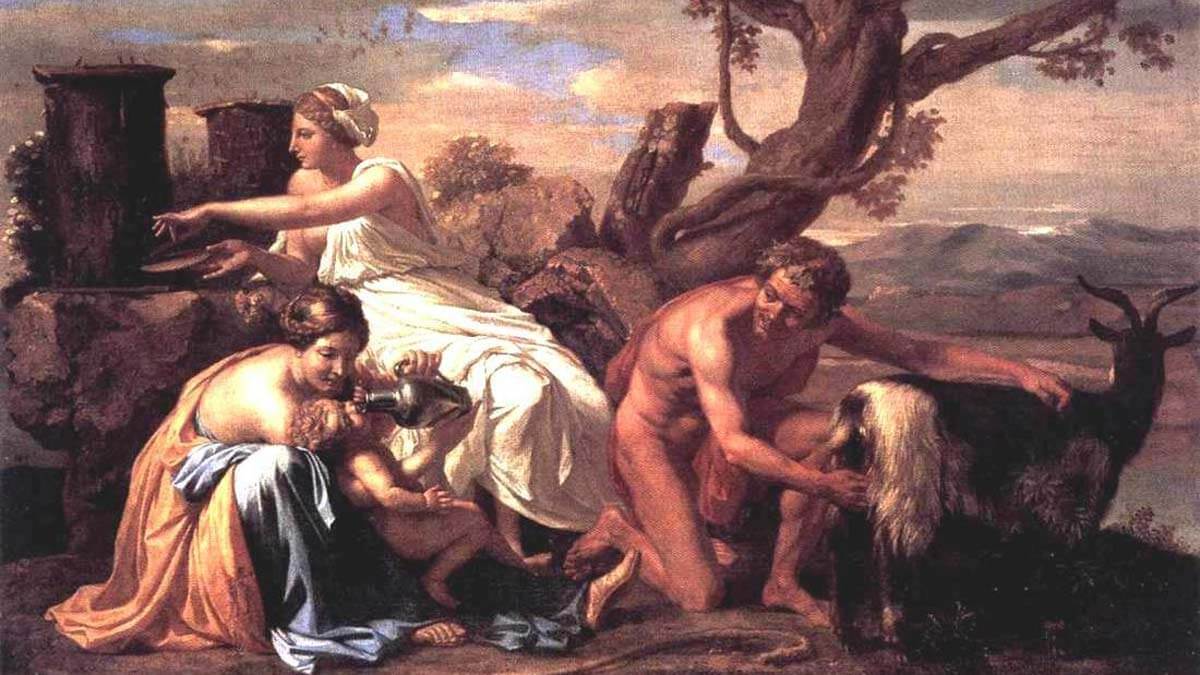
1. Theogony: Clash of the Titans
According to Hesiod’s Theogony, in the beginning, there was only Chaos. Dense darkness covered everything until the Earth was born out of Chaos and the mountains, the sea, and then the sky (Uranus) with the sun, the moon and the stars. Then Uranus and Earth came together and gave birth to the Titans. But, Uranus was afraid that one of his children would take his throne. That is why he enclosed every one of them in the depths of the Earth. But his son, Cronus, the strongest of the Titans, defeated him and became world leader. He married Rhea, who gave birth to two gods and three goddesses: Hades, Poseidon, Hera, Hestia and Demeter.
But Cronus inherited the fear of his father and believed that one of his offspring would later take his throne. So, when they were born, he swallowed them. However, Rhea was expecting a sixth child and fearing it would share the same fate with her other children, she secretly gave birth on a mountain in Crete and hid the newborn there. She named the child Zeus. She also tricked Cronus into thinking he swallowed this child too, by giving him a stone wrapped in swaddling clothes, which Cronus swallowed thinking it was his newborn. The Nymphs took care of Zeus and fed the baby with the milk of a goat. When he grew up, Zeus found his father and tricked him into drinking a mixture of wine and mustard, which caused him to disgorge the contents of his stomach. Zeus’ older brothers and sisters came out of Cronus fully grown! This is how the great Titanomachy began, the war between the Titans and the Gods, with Zeus as their leader. This titanic battle lasted for ten years. The gods defeated the Titans and threw them into Tartarus, a dark and gloomy place as far from the earth as earth is from the sky. Then the gods fought with the Giants for the dominance of the world. The Gigantomachy lasted a long time as well. But the gods were again victorious. Thus, Zeus became the ruler of the whole world and he and the other gods settled in Olympus.
![by Joachim Wtewael [Public domain] The Battle Between the Gods and the Titans](https://greektraveltellers.com/images/Blog/Tales%20of%20Greek%20Mythology/The-most-famous-ancient-Greek-myths-the-titanomachy.jpg)
2. Τhe Three Sisters of Fate
In Greek mythology, the Moirae are the three goddesses of fate. Clotho, Lachesis and Atropos. The three sisters weave the fate of humans and gods alike. Neither human nor God has the power to influence or question their judgment and actions! Clotho, the youngest one, spins the thread of life; she is the very origin, the creation of life itself and her thread is spun upon the birth of a person!
Lachesis, the second sister, is the one that allocates the fate of people during life. The name comes from the Greek word ‘λαγχάνω’ which means to obtain from lots. In that sense, one can understand that their destiny is chosen out of a myriad of possibilities. It is said that Lachesis measures the thread of life with her rod, determining its length and nature. The last sister of fate is Atropos, the unturning. Atropos is the cutter of the thread of life and with her shears she determines how someone will die.
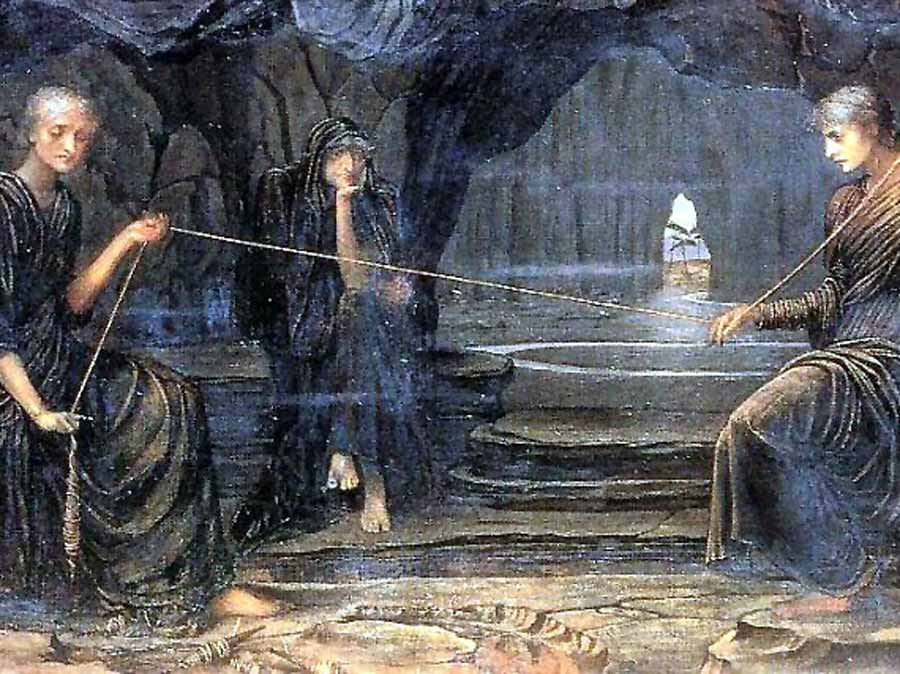
3. Prometheus and the Theft of Fire
One day, Zeus distributed gifts to all the gods, but he didn't care much for humans. The Titan Prometheus, however, because he loved and felt sorry for humans, climbed up on Olympus and stole the fire from Hephaestus' workshop, put it in a hollow reed and gifted it to the humans. This way, humans could create fire, warm up and make tools. Zeus became very angry when he heard about this. He took Prometheus to a high mountain, the Caucasus, and chained him on a rock with thick chains made by the smith god, Hephaestus. And every day, Zeus would send an eagle that ate Prometheus’ liver. For thirty years Prometheus remained bound in the Caucasus, until the great hero Hercules, Zeus’ demigod son, released him finally from his torment.
![by Theodoor Rombouts [Public Domain] The Punishment of Prometheus](https://greektraveltellers.com/images/Blog/Tales%20of%20Greek%20Mythology/The-most-famous-ancient-Greek-myths-Prometheus-and-his-punishment.jpg)
Related Tour
Create Your Own Myth in Greece
4. Pandora’s Box
After Prometheus gave the fire to humans, Zeus decided to take vengeance. He ordered Hephaestus to create the first human woman out of soil and water. Each god gave the woman a gift: Athena gave her wisdom, Aphrodite beauty, Hermes cunning and so on. The name of the woman was Pandora (meaning “all gifts” in Greek). Zeus gave Pandora a jar, warning her not to open it under any circumstances and sent her to Prometheus’ brother, Epimetheus. Prometheus had warned his brother not to accept any gifts from Zeus. However, Epimetheus accepted Pandora who, although tried hard to resist the temptation, opened the jar and released all evils upon the world. Hatred, war, death, hunger, sickness and all the disasters were immediately released.
![by Charles Edward Perugini [Public domain] Pandora's box](https://greektraveltellers.com/images/Blog/Tales%20of%20Greek%20Mythology/The-most-famous-ancient-Greek-myths-Pandora-box.jpg)
5. The Abduction of Persephone by Hades
Persephone was the daughter of Demeter and Zeus. As Persephone grew, so did her beauty. When Hades, the god of the Underworld, saw her, he immediately fell in love with her and decided to abduct her. According to the Homeric Hymn to Demeter, one sunny day the young Persephone was gathering flowers in a field, accompanied by her close friends, the Ocean Nymphs. The carefree Persephone moved away from her companions in search of the most beautiful flower. When she reached out to pluck a wondrous narcissus, Earth yawned open and Hades appeared in his golden chariot and snatched her away to the Underworld while she was in tears. Demeter was looking in vain for her daughter day and night. The land and crops of the earth began to wither. After a while, the Sun, looking at everything from the sky, felt sorry for the goddess and told her what happened. Demeter went to Zeus and demanded that Persephone be returned, or else she would not let the earth blossom again.
Zeus sent the Messenger God, Hermes, to Hades with the command to release Persephone. Before returning her to Hermes, Hades forced Persephone to eat six pomegranate seeds. Hades knew that if someone ate food in the Underworld, they could never really escape the world of the dead. Persephone was shortly after reunited with her mother. However, Demeter was furious when she heard about the pomegranate seeds. Zeus then proposed a compromise: for every seed Persephone had eaten, she would spend a month with Hades. Demeter accepted Zeus’ proposal. Thus, Persephone would travel to the Underworld every six months during which time Demeter would mourn and the earth with her. But after six months, Persephone would return to her and Demeter would be happy again and the earth would blossom once again!
Hint! this story is part of the mythological explanation of how the Eleusinian Mysteries were founded, the most sacred and secret religious rites of Ancient Greece.
![by Peter Paul Rubens [Public domain] The Rape of Proserpina](https://greektraveltellers.com/images/Blog/Tales%20of%20Greek%20Mythology/The-most-famous-ancient-Greek-myths-the-abduction-of-Persephone-by-Hades.jpg)
Unlocking the Eleusinian Mysteries Tour
6. The Name Giving of Athens
Cecrops, the first king of Attica, had named his city after him, Cecropia. However, the gods of Olympus saw this lovely piece of land and wanted to name it after them and become its patron. The most persistent rivals were Poseidon, the god of the sea, and Athena, the goddess of wisdom. To solve their dispute, Zeus decided that each of them would present a gift to the city and the people of Cecropia would decide which gift was the best, and therefore which god would be the patron of the city. One sunny day, Cecrops and the residents of the city went up to a high hill to watch the gods presenting their gifts. Poseidon was the first to present his gift. He struck a rock with his trident and caused a spring of water to gush forth from the ground. This signified that he was assuring the citizens with water and therefore they wouldn’t face any time of drought.
However, the people were not exactly enchanted with his gift because the water from the spring tasted salty, just like the waters of the sea over which Poseidon ruled. Next, it was the turn of goddess Athena. She struck her spear on the ground and a lovely olive tree jumped out of the earth. The citizens liked this gift better because it would give them food, oil and firewood. This is how Athena became the patroness of the beautiful city and this is how Athens got its name according to Greek Mythology.
Hint! The hill where the gods presented their gifts was the Acropolis Hill. There is still an olive tree there and some say it is the same tree Athena gifted to the Ancient Athenians. You can discover more exciting stories about Acropolis, in an Acropolis Mythology tour .
![by Noël Hallé [Public domain] The contest of Athena and Poseidon](https://greektraveltellers.com/images/Blog/Tales%20of%20Greek%20Mythology/The-most-famous-ancient-Greek-myths-Athens-and-Poseidon.jpg)
In the Footsteps of Percy Jackson: Mythology Trip to Greece
7. Theseus and the Minotaur
In Greek Mythology, Minos' son, Androgeos, has been “treacherously killed” while he was in Athens. Minos immediately sought revenge from the Athenians and as retribution he had them send to Crete several youths every seven or nine years to be devoured by Minotaur, a terrifying monster, half man half bull. The young Athenians were thrown into a dark maze, full of arcades and dead ends, wandering aimlessly, until the Minotaur would find them. Theseus, the son of the king of Athens Aegeus, did not endure this humiliation and demanded to be among the seven young men that were to be sent for the third time to the labyrinth. So, he arrived in Crete and met Minos' daughter, Ariadne, with whom he fell in love.
Ariadne then gave Theseus a lame spinner (known as Ariadne's thread) and advised him to tie his end to the entrance of the labyrinth and unwrap it so that he could find the exit after killing Minotaur. Theseus entered the dark arcades holding the mite and managed to kill the Minotaur by cutting off his head, thus ending Minos' blood rage. Then he managed to return to the exit, following Ariadne’s thread. Theseus took Ariadne with him on his boat and began the journey to Athens. However, they made a stop on the island of Naxos, where they celebrated their love. While on the island, the god Dionysus appeared in Theseus' dream and told him that he had to leave the island without Ariadne since she was meant to stay there and become Dionysus' wife. Ariadne stayed in Naxos and married Dionysus, while Theseus returned to Athens. The two lovers never met again…
![by Jean-Baptiste Regnault [Public domain] Theseus and Ariadne](https://greektraveltellers.com/images/Blog/Tales%20of%20Greek%20Mythology/The-most-famous-ancient-Greek-myths-Theseus-and-the-Minotaur-Labyrinth.jpg)
8. Daedalus and Icarus
The labyrinth in King Mino’s palace was designed by a famous inventor and engineer, Daedalus. It is said that Athena herself taught Daedalus. King Minos commissioned to Daedalus and his son Icarus the construction of the labyrinth that would held the monster Minotaur. After finishing their work, King Minos imprisoned father and son inside the labyrinth, in an effort to prevent knowledge of his labyrinth from spreading to the public. Father and son were thinking hard on how to escape until Daedalus came up with an idea. They gathered a lot of feathers from birds and glued them together with wax thus, making four large wings. They tied the wings to each shoulder and fled from the island of Crete. Daedalus had warned Icarus not to fly close to the sun because the wax would melt. After passing the island of Delos, the boy, forgetting himself, flew high towards the sun. The hot sun softened the wax that held the feathers together and Icarus fell in the sea and drowned. Daedalus named the place where his son fell Icaria, in his memory.
![by Joos de Momper [Public Domain] Landscape with the fall of Icarus](https://greektraveltellers.com/images/Blog/Tales%20of%20Greek%20Mythology/The-most-famous-ancient-Greek-myths-the-fall-of-Icarus-αντίγραφο.jpg)
9. The Myth of King Aegeus
The legend has it that before Theseus left for the palace of King Minos in Crete to kill the Minotaur, Aegeus, his father and King of Athens, asked him to change the sails of his ship from black to white on his return home so that he knew that he survived. Aegeus waited patiently in Sounio to see his son’s ship return and the color of its sails. Theseus, although he killed the Minotaur and got out of the labyrinth safely, he forgot to change his sails to white. Seeing the ship with the black sails, Aegeus thought that his beloved son was killed. Sadness and grief filled his heart and mind, and without waiting to get the news from the men on the boats, fell from the rocks of Sounio into the sea below... Since then, the sea is called Aegean in his memory. And his son, Theseus, became the King of Athens.
![by Nicolas Poussin [Public domain] Theseus Finds His Father's Sword](https://greektraveltellers.com/images/Blog/Tales%20of%20Greek%20Mythology/The-most-famous-ancient-Greek-myths-Theseus-and-King-Aegeus.jpg)
10. Perseus and the Gorgon Medusa
Another famous tale from Greek Mythology is the killing of the terrifying Gorgon Medusa from the great hero Perseus. Perseus was a demigod, son of the Olympian god Zeus and the mortal woman Danae. Perseus sought to kill Medusa, the only mortal of the three monstrous sisters. Instead of hair, Medusa had living venomous snakes on her head and anyone that would look at her eyes would immediately turn into stone. With the help and the wisdom of goddess Athena, Perseus approached the monster by looking through the reflection of a shield and cut off her head.
Tip! For the "Percy Jackson" fans, Perseus was the inspiration of Rick Riordan (the author of the series) for Percy's name. If you are visiting Greece, do not miss the opportunity to participate in a Hero's Quest Inspired by Percy Jackson or customize your very own Percy Jackson-inspired tour , and follow in the footsteps of your beloved heroes.
![by Jean-Marc Nattier [Public domain] Perseus, under the protection of Minerva, turns Phineus to stone by brandishing the head of Medusa](https://greektraveltellers.com/images/Blog/Tales%20of%20Greek%20Mythology/The-most-famous-ancient-Greek-myths-Perseus-and-Medusa.jpg)
You may also like:
- The Greek Gods: Full list and Background
- Greek Mythology Monsters: Full list and description
11. The Love Story of Eros and Psyche
In Greek Mythology, love has the highest praise. Psyche (meaning “soul” in Greek), was an impressive mortal girl, surpassing in beauty even the goddess of love, Aphrodite. Her beauty was so well-known that men from all over the land would visit her to admire her beauty. This made Aphrodite extremely jealous and decided to punish the girl. She ordered his son, Eros, who could make someone fall in love by hitting them with his arrows, to make Psyche fall in love with the vilest and despicable creature who walked on Earth. However, when Eros gazed upon Psyche he fell in love with her himself. He could not carry out his mother’s order and instead, he remained silent. The years went by and, despite her beauty, Psyche could not marry. All men admired her godly beauty but then would go on and marry another. Her parents decided to go to Delphi and ask for guidance from Apollo. The Oracle said that Psyche had to dress in black, climb a high mountain alone and stay there. Then, a winged serpent would come for her and take her as his wife. Psyche and her parents had no choice but to follow the god’s words. As she was waiting alone on the mountain, shaking and crying, the fresh wind of Zephyrus raised her and traveled her through the sky to the gates of a magnificent castle. There, a sweet voice greeted her and made her feel like home.
"Love cannot live without trust"
Every night, Eros would come in the dark and lie beside her. Without seeing him, Psyche could feel that he was not a monster but the loving husband she had always been wishing for. The following days passed in full joy and Psyche was happy. However, she missed her family and felt sorry for them. He asked Eros to let her see them and he granted her wish, after warning her not to be influenced by them, otherwise, their relationship will be destroyed and she will suffer a lot. The next day, her two sisters, carried by the wind, arrived to the palace. They felt jealous of her sister living like a goddess and told her that her husband did not allow her to see him because he was the horrible creature the Oracle had mentioned. This idea overwhelmed the mind of Psyche, who could not understand why her husband would not show his face. So, she devised a plan.
She decided that when Eros falls asleep next to her, she will light a candle to see him. If he is a monster she will kill it with her knife, otherwise, she will happily fall back to sleep. And so she did. But, after seeing his face, a drop of hot oil fell from the candle and woke Eros up. He immediately left her, saying with a heartbroken voice: “Love cannot live without trust.” Psyche was really sorry and sad, and she could not find Eros anywhere. Desperate, she appeared to his mother, goddess Aphrodite, and asked for her help. Aphrodite told her that in order to reunite with her loved one she would have to carry out three impossible tasks. With the help of nature and others, she managed to complete all the tasks and return to Aphrodite. Despite her success, Aphrodite got angry with her and yelled the poor girl that she would never let her go. Witnessing all this, the other gods of Olympus sent Hermes to tell Eros everything that has happened. Eros was touched by Psyche’s love and returned to her. From that day on, the couple lived happily together. As a wedding gift, Zeus allowed Psyche to taste the drink of the Gods, Ambrosia, making her immortal. Aphrodite was also happy because now that Psyche was immortal, the men would forget about her and worship once again the true goddess of beauty.
![by Anthony Van Dyck [public domain] Cupid and Psyche](https://greektraveltellers.com/images/Blog/Tales%20of%20Greek%20Mythology/The-most-famous-ancient-Greek-myths-Eros-and-Psyche.jpg)
12. The Fateful Love of Orpheus and Eurydice
In Greek Mythology, Orpheus was the greatest lyre player in the world. He could charm rocks and rivers with his music. When Orpheus fell in love with Eurydice, he wooed her with his song. Their marriage was brief, however, as Eurydice was bitten by a viper and died shortly after. Devastated, Orpheus journeyed to the Underworld to convince Hades and Persephone to return his bride to him. Orpheus managed to pass through Cerberus, the three-headed dog who was the guardian of the gates, by making him fall asleep with his music. When he played his lyre, the king and queen of the Underworld were moved by his song, and they agreed to let Eurydice live again on one condition: she would follow him while walking out to the light from the darkness of the Underworld, but he should not turn to look at her before she was out to the light. As they started ascending towards the living world, Orpheus began to think it might all be a trick, that the gods were just making fun of him and Eurydice was not really behind him. Unable to hear Eurydice's footsteps, Orpheus finally lost his faith and turned to look back, only a few meters away from the exit. Eurydice was in fact behind him, as a shade that would become flesh again when she was back into the light. After Orpheus looked at her, Euridice’s shade fell back into the darkness of the Underworld, now trapped in Hades forever.
![by Peter Paul Rubens [Public Domain] Orpheus and Eurydice](https://greektraveltellers.com/images/Blog/Tales%20of%20Greek%20Mythology/The-most-famous-ancient-Greek-myths-Orpheus-and-Eurydice.jpg)
Life and Death in Ancient Greece Walking Tour
13. The Tragic Hero Oedipus
Laius was the King of Thebes and married to Jocasta. Laius had received an oracle from Delphi saying that his son would kill him and marry his wife. When Jocasta gave birth, Laius tied the baby’s ankles and ordered a shepherd-servant to take it to the mountain and abandon it there to die. However, the shepherd took pity on the baby and passed it to another shepherd who gave it to the King of Corinth and his wife, who did not have any children and raised it as their own. They called the child Oedipus, meaning “swollen feet” in Greek. When Oedipus grew up, he traveled to Delphi where the Oracle gave him the prophecy that he would kill his own father and marry his mother. Shocked by the words of Apollo, he did not return to Corinth so as to avoid his father and mother. As he was traveling near Thebes, Oedipus met Laius at a crossroads and killed him in a fight, without knowing he was his real father, thus fulfilling the first part of the prophecy.
When he reached Thebes, he learned of Sphinx, a terrible monster that devoured anyone that did not solve its riddle. It was proclaimed that whoever managed to solve the riddle and kill the Sphinx, he would take the throne of Thebes, by marrying Laius’ widow, Jocasta. Oedipus was successful in solving the riddle and killing the Sphinx. He married Jocasta and together had four children. Little did he know that his children were also his siblings. While Oedipus was at the peak of his happiness, there was an epidemic in Thebes. Oedipus sought the advice of the Oracle of Delphi. The Oracle's answer was that in order to stop the epidemic, Laius’ killer must be found and punished. The investigation that followed led Oedipus to the truth. Upon realizing the truth, Jocasta, his mother and wife, hanged herself. Oedipus then seized two pins from her dress and blinded himself with them. A Greek tragedy indeed…
![by Bénigne Gagneraux [Public Domain] The Blind Oedipus Commending his Children to the Gods](https://greektraveltellers.com/images/Blog/Tales%20of%20Greek%20Mythology/The-most-famous-ancient-Greek-myths-Oedipus.jpg)
14. The 12 Labors of Hercules
Hercules is the most famous hero of Greek Mythology and well-known for his twelve labors. He was a demigod, son of Zeus and Alcmene. Hera, the wife of Zeus, hated Hercules and wanted to kill him. Driven mad by the goddess, Hercules killed his own sons by his wife Megara. After realizing what he did, he traveled to Delphi and asked Apollo how he could atone for his actions. Pythia, the Oracle of Apollo, told him to go to Tiryns and serve his cousin, King Eurystheus, for twelve years. Eurystheus, loathing his cousin, set him to complete twelve impossible labors. He ordered him to: 1) slay the Nemean Lion, 2) slay the nine-headed Lernaean Hydra, 3) capture the Golden Hind of Artemis, 4) capture the Erymanthian Boar, 5) clean the Augean stables in a single day, 6) slay the Stymphalian Birds, 7) capture the Cretan Bull, 8) steal the Mares of Diomedes, 9) obtain the girdle of Hippolyta, Queen of the Amazons, 10) obtain the cattle of the monster Geryon, 11) steal the golden apples of the Hesperides, and 12) capture and bring back Cerberus, the three-headed dog of Hades. Hercules managed to complete all twelve labors and free himself from the service of Eurystheus, having atoned for the killing of his sons. Many more adventures followed until he found a tragic death from his wife, Megara.
![by Pieter Paul Rubens [Public Domain] Heracles and the Nemea Lion](https://greektraveltellers.com/images/Blog/Tales%20of%20Greek%20Mythology/The-most-famous-ancient-Greek-myths-Hercules-and-the-Nemea-Lion.jpg)
15. The Myth of Apollo and Daphne
Daphne was a Naiad Nymph in Greek Mythology, the daughter of a river god. She was famous for being incredibly beautiful and for catching the eye of god Apollo. However, Daphne was determined to remain unmarried and untouched by a man for the rest of her life. According to Greek Mythology, Apollo had been mocking the God of Love, Eros. In retaliation, Eros fired two arrows: a golden arrow that struck Apollo and made him madly in love with Daphne, and a lead arrow that made Daphne hate Apollo.
Under the spell of the arrow, Apollo continued to chase Daphne, but she continued to reject him. Apollo told Daphne that he would love her forever. Daphne turned to the river god, Peneus, and pleaded to him to free her from Apollo. In response, Peneus used metamorphosis to turn Daphne into a laurel tree. Apollo used his powers of eternal youth and immortality to make Daphne’s laurel leaves evergreen. It is believed that Daphne had to sacrifice her body and turn into a tree, as this was the only way she could avoid Apollo’s sexual advances. After Daphne had been transformed into a laurel, Apollo made the plant sacred and vowed to always wear it as clothing. Thus, in a way, Daphne stayed with Apollo forever…
![by Nicolas Poussin [Public Domain] Apollo and Daphne](https://greektraveltellers.com/images/Blog/Tales%20of%20Greek%20Mythology/The-most-famous-ancient-Greek-myths-Apollo-and-Daphne.jpg)
16. The One-sided Love Story of Pan and Syrinx
Pan was the god of fertility and the patron of shepherds and huntsmen in Greek Mythology; he presided over all rural occupations, he was chief of the Satyrs and head of all rural divinities. According to the common belief, he was the son of Hermes and a wood nymph, and came into the world with horns sprouting from his forehead, a goat's beard and a crooked nose, pointed ears, and the tail and feet of a goat. He had such a repulsive appearance that, at the sight of him, his mother fled in dismay. Hermes, however, took up his curious little offspring, wrapped him in a hare skin, and carried him in his arms to Olympus. The grotesque form and the merry antics of the little Pan made him a great favorite with all the immortals, especially Dionysus; and they bestowed upon him the name of Pan (meaning “all” in Greek) because he had delighted them all. Pan’s life was defined by his relationships with the Nymphs. He loved them deeply, he was dancing and playing music with them, and some of them loved him too; others hated him and were running away from him... very complicated relationships indeed... And his mother issues appeared soon enough.
The spirit of the reed tree comes from a nymph. Her name was Syrinx. Pan was the one to cause her doom. He was in love with her and wanted her at any cost! He was chasing after her trying to make her his! So, in order to escape him, she transformed herself into a reed tree. She hid by the river among the other reeds but Pan would not stop there. He went down to the river and started ripping off every reed until he finally found her. He ripped her off the ground and started blowing into the pipes to get her spirit out. While he was blowing, he realized that beautiful sounds were coming out of the reed pipes. He decided to bind them together into a big flute and started making music out of them. Oh, and what beautiful music he made! From then on, he would never leave his flute and he would always play for the other nymphs to dance…
![by Adam Elsheimer [Public domain] Pan and Syrinx](https://greektraveltellers.com/images/Blog/Tales%20of%20Greek%20Mythology/The-most-famous-ancient-Greek-myths-Pan-and-Syrinx-Nymph.jpg)
17. Goddess Athena and Arachne
In Greek Mythology Gods were powerful and humans should be obedient. But was that always the case? In ancient times there was a beautiful lady called Arachne (meaning “spider” in Greek). She knew the art of loom very well and she weaved beautifully. She boasted that she could weave better than Athena, who was the patroness of the weaving art. She even dared to ask the goddess to a contest. Athena accepted and they began to weave. Athena weaved a representation of her fight with Poseidon over the naming of Athena. Arachne, on the other hand, weaved the naughty adventures of Zeus and the other gods of Olympus. Athena, angered by the hubris Arachne dared to show, transformed her into a spider and cursed her to be hanging from her web for the remainder of her life.
![by Peter Paul Rubens [FAL] Pallas and Arachne](https://greektraveltellers.com/images/Blog/Tales%20of%20Greek%20Mythology/The-most-famous-ancient-Greek-myths-Athena-and-Arachne.jpg)
18. The Myth of Narcissus and Echo
Echo was a wood Nymph, cursed by Hera to not be able to speak properly, but rather repeat the last words addressed to her. One day, she was wandering around the mountains, until she saw a handsome young man that no one could resist his charm, Narcissus. The Nymph fell in love with the youth, but could not speak to him because of Hera’s curse. So, she was following him from the shadows, silently and in love, waiting patiently for the proper moment. At some point, Narcissus felt her presence and asked “Is anybody here?”, to which Echo replied “here”. A confusing and repetitive conversation followed until Narcissus called her to come out and make love with him. But, as soon as Echo stepped out, Narcissus told her that he’d rather die than give himself to a wood nymph.
Echo, heartbroken, took refuge in a cave and lost her appetite for food or water. After a while, poor Echo started growing skinny from starvation until her body disappeared, living only dust and her voice. Nemesis, the goddess of revenge against those who show hubris, decided to punish Narcissus for the treatment of poor Echo. The goddess made Narcissus fall in love with his own reflection that he saw in a pond near Echo’s cave. Narcissus could not leave his own reflection out of love and starved to death, like Echo. But, before he dies, Narcissus cried out to his reflection “Farewell, dear boy. Beloved in vain.” Echo’s voice repeated his last words from the cave as Narcissus drew his last breath. To this day, Echo still repeats the last words or phrases in caves or labyrinths.
![by John William Waterhouse [Public Domain] Echo and Narcissus](https://greektraveltellers.com/images/Blog/Tales%20of%20Greek%20Mythology/30-of-the-Most-Famous-Tales-from-Greek-Mythology-Echo-and-Narcissus-myth.jpg)
19. The Myth of Hermaphroditus
Hermaphroditus was the son of Hermes and Aphrodite, and he was raised by nymphs in the caves of Mount Phrygia. On his face, one could see the grace and beauty of both of his parents, from whom he took his name. When he was fifteen years old, he left the mountain where he grew up to wander into Asia Minor and meet new people. In the woods of Caria, he stopped to rest and drink water from a spring called Salmacis. The homonymous nymph, Salmacis, was captivated by the beauty of the young man and tried to seduce him, but was rejected. When Hermaphroditus felt he was alone, he jumped into the water naked to swim. Salmacis appeared behind a tree and jumped in as well, wrapping her body around that of the young man, forcibly kissing and touching him. While Hermaphroditus was trying to break free from her, the nymph called out to the gods to let them be united forever. The gods decided to grant her wish and blended their two bodies into one, creating a creature of both sexes. Hermaphroditus prayed to his parents, Hermes and Aphrodite, that anyone else who bathed in that spring would share his fate. And the gods granted his wish.
![by Moyses van Wtenbrouck [Public domain] Wooded Pool with Salmacis and Hermaphroditus](https://greektraveltellers.com/images/Blog/Tales%20of%20Greek%20Mythology/The-most-famous-ancient-Greek-myths-Salmacis-and-Hermaphroditus.jpg)
20. Bellerophon and Pegasus
Bellerophon was a great hero of Greek Mythology. He was a slayer of monsters and as famous as Perseus. His most famous feat was the killing of Chimera, a horrible monster with a goat's body, a serpent's tail and a lion's head that could breathe fire. The great hero was the son of the mortal woman Eurynome by either her husband and King of Corinth Glaucus or the god Poseidon. Bellerophon was accompanied in his adventures by the winged horse, Pegasus. The Myth has it that Pegasus was born from the blood of her beheaded mother Medusa, the gorgon who was tricked and killed by the hero Perseus. A more detailed version of the myth said that he was born when Medusa’s blood was mixed with the foam of the sea. The myth says that Pegasus was born as a winged horse because his father, Poseidon, had the shape of a horse when he seduced Medusa. When Pegasus was born, a huge thunder with lightning pierced the sky, and that’s how his connection to the forces of the skies was established.
So, one day Bellerophon saw the wonderful animal drinking water and decided to tame it. This would not have been possible if Athena had not helped him, by giving him a golden bridle. After slaying Chimera, Bellerophon's fame grew and so did his arrogance. He believed that because of his great feat, he deserved to fly to the mountain of the gods, Olympus, and set course with Pegasus. Zeus was angered by his hubris and sent a gadfly to sting Pegasus, causing Bellerophon to fall off the flying horse. Pegasus continued to Olympus and became the loyal horse of Zeus. It is said that Athena spared the life of Bellerophon by softening the ground for his fall. However, the once-great hero spent his remaining life crippled and lonely, always searching for his beloved winged horse.
![by Giovanni Battista Tiepolo [Public domain] Bellerophon on Pegasus](https://greektraveltellers.com/images/Blog/Tales%20of%20Greek%20Mythology/The-most-famous-ancient-Greek-myths-Bellorophon-and-Pegasus.jpg)
21. Leda and the Swan
Another tale from Greek mythology about Zeus is the one with Leda. When the Olympian god saw Leda on the banks of the river Eurotas, felt an overwhelming desire for her. So, he went to Aphrodite and asked for her advice. Aphrodite transformed Zeus into a brilliant swan and herself into an eagle, and she began pursuing the swan in the river valley. The pursuing Zeus swan sought refuge in the arms of Leda, who received him tenderly and warmed him within her. However, nine months after this incident, she gave birth to two eggs. Not one swan came out of each, but two pairs of twins. On one hand Polydefkis and the beautiful Helen and on the other Castor and Klytemnestra! Her kids became very famous and lead characters to many great ancient tragedies!
![by François Boucher [Public domain] Leda and the Swan](https://greektraveltellers.com/images/Blog/Tales%20of%20Greek%20Mythology/The-most-famous-ancient-Greek-myths-Leda-and-the-Swan-myth.jpg)
22. The Myth of Andromeda and Perseus
Long ago, the African Kingdom of Ethiopia was ruled by a king named Cepheus and his queen Cassiopeia. The royal couple had a daughter, Andromeda. One day, the queen boasted about her beauty before the mythical inhabitants of the sea - the Nereids. Nereids became very angry because they believed themselves the most beautiful creatures in the world. They complained to their father, the god of the seas, Poseidon, that he should punish her. The mighty lord of the seas sent a huge sea monster to ravage the coast of Ethiopia, including the vain queen. The desperate King asked for the guidance of Apollo in Delphi. The Oracle advised that no respite would be found until the king and the queen sacrificed their daughter to the monster. To appease Poseidon, Cepheus and Cassiopeia offered, reluctantly, their beloved daughter to be eaten by the monster. The beautiful Andromeda was chained on a seaside rock and awaited her fate.
Meanwhile, the great hero Perseus was returning from having slain Medusa, riding the winged horse, Pegasus, high in the sky. Passing over Ethiopia, he saw Andromeda chained on the rock and immediately fell in love with her. As the monster was approaching to devour Andromeda, the brave Perseus started fighting it; their fight lasted for a long time. Finally, Perseus used the deadly look of Medusa's severed head, petrifying the huge monster which fell in the sea and became an island. Perseus freed Andromeda from her chains and took her back to the palace of Cepheus where they got married. They lived together happily, having seven sons and two daughters. After Andromeda’s death, goddess Athena placed her among the constellations in the northern sky, near Perseus and Cassiopeia.
![by Pierre Mignard [ Public Domain] Metamorphoses of Ovide](https://greektraveltellers.com/images/Blog/Tales%20of%20Greek%20Mythology/The-most-famous-ancient-Greek-myths-Perseus-and-Andromeda.jpg)
23. The Myth of Sisyphus and his Eternal Punishment
Once upon a time, Corinth was a very strong Greek city-state, the remains of which can be found to this day. Some sources refer to the great city of Efyra as the city founded by Sisyphus, which was later named Corinth. Others say that the witch Medea gave Corinth to Sisyphus, who became its king. One day, Asopos' daughter, Aegina, had been abducted by Zeus and when Asopos asked if Sisyphus had seen anything, Sisyphus mentioned that he saw Zeus fly over with Aegina. When Zeus heard that, he got really angry that he was betrayed by a mortal. So, the king of the gods sent Death to take Sisyphus' life. However, when Death came to chain Sisyphus, the latter asked Death a demonstration of how the chains work and then deceived Death and chained him instead.
The imprisonment of Death meant that he could not come for any human and people stopped dying. The gods in response sent Ares, the god of war, to free Death. This time Death took Sisyphus in his chains and led him to the world of the dead, the Underworld, kingdom of Hades. However, before he died, Sisyphus asked his wife, Merope, not to bury him properly by neglecting to put a coin in his mouth. This way he could not pay Charon, the ferryman, to cross the river Styx. The lack of a proper burial disturbed Hades so much, that he sent Sisyphus back to the living. Thus, Sisyphus managed to escape Death once more. When the gods finally managed to catch Sisyphus again, they decided that his punishment should last forever. They made him push a rock up a mountain; every time the rock would reach the top, it would roll down again and Sisyphus would have to start all over again.
![by Franz Stuck [Public domain] Sisyphus](https://greektraveltellers.com/images/Blog/Tales%20of%20Greek%20Mythology/The-most-famous-ancient-Greek-myths-Sisyphus.jpg)
24. King Midas and his Golden Touch
In Greek Mythology, Midas was the king of Phrygia and ruled from his castle and its beautiful garden in which “roses grow of themselves, each bearing sixty blossoms and of surpassing fragrance”, according to Herodotus. One day, some of Midas’ people found a drunken old man near the garden and brought him before the king. Midas recognized the old man, who was god Dionysus’ closest reveler, the satyr Silenus. Instead of punishing him, Midas hosted the satyr for ten days, offering him food, drinks and entertaining him. When he returned him safely to Dionysus, the god felt gratitude and offered Midas to grant him any wish he had. Midas, motivated by his greed, asked that he should be able to turn into gold everything he touched. At first, Midas gained great wealth and power from his unique ability. But he later realized that it was more of a curse than a gift. Even the water and the food that he touched was turning into gold. He could not enjoy even the simplest joys in life anymore. Midas went back to Dionysus and begged him to take back his power.
![by Nicolas Poussin [Public Domain] King Midas turns an oak branch to gold](https://greektraveltellers.com/images/Blog/Tales%20of%20Greek%20Mythology/The-most-famous-ancient-Greek-myths-King-Midas-and-his-golden-touch.jpg)
25. The Apple of Discord
The great Trojan War started with a few envious Gods and an apple... During the wedding of Thetis and Peleus, the goddess of discord, Eris, was not invited for apparent reasons. Eris felt offended and, arriving at the wedding, tossed in the middle of the feast of the gods a golden apple, saying “to the fairest”. The apple was claimed by Hera, Athena and Aphrodite, sparking a vanity-fueled dispute among the three. The goddesses asked Zeus who the apple belonged to (in other words, who is the fairest of them all) and Zeus said that Paris, a mortal man and the rightful Prince of Troy, should choose.
Paris at the time was living as a shepherd on Mount Ida and was not aware of his royal descent. He had been abandoned as a baby, because of an oracle that said he would cause the destruction of his city. The three goddesses appeared before the shepherd Paris and asked him to choose who is the fairest of them all. Because Paris at first was unable to choose one, each of the goddesses offered him a gift: Hera offered him wealth and kingly power, Athena wisdom and glory among men, and Aphrodite offered him the love of the most beautiful woman in the world. Without hesitation, Paris gave the golden apple to Aphrodite. From that day on, Aphrodite was offering council to Paris. She was the one that informed him of his royal blood and led him back to Troy. The rest is history…
![by Jacob Jordaens [Public domain] Golden Apple of Discord](https://greektraveltellers.com/images/Blog/Tales%20of%20Greek%20Mythology/The-most-famous-ancient-Greek-myths-the-Golden-Apple-of-Discord.jpg)
26. The Great Trojan War
The events that occurred in the myth of the Apple of Discord would lead to the greatest war of Greek Mythology. The Trojan War is an epic poem, written by Homer. Having been promised by Aphrodite the love of the most beautiful woman, Paris abducted Helen, wife of Menelaus of Sparta. Refusing to return Helen, Menelaus’ brother, Agamemnon, gathered a great army of Greeks to sail to Troy. At Aulis, the army was gathered, with the greatest Greek heroes among them - Achilles, Patroclus, Odysseus, Nestor to name a few. However, there was no wind for the ships to sail and the warriors started to complain. The reason for this was the killing of Artemis’ sacred deer by Agamemnon. The Greek King was forced to sacrifice his daughter, Iphigenia, to appease Artemis and the winds came.
For nine years the Greek army was trying to enter the walls of Troy without any luck. Finally, Odysseus had an idea to build a gigantic hollow wooden horse, in which a small group of warriors would conceal. The other Greeks appeared to sail for home, leaving behind the horse as a gift to the Trojans. Despite the warnings of Cassandra and others, the Trojans took the horse inside the walls and celebrated with a lot of wine and music. When everyone was asleep, the Greek warriors crept out of the horse and opened the gates. The Greek army entered without resistance and Troy fell. Achilles died during the battle, having been hit in the heel by an arrow. The gods also took part in the war. Hera, Poseidon and Athena aided the Greeks, while Ares and Aphrodite the Trojans.
![by Francesco Primaticcio [Public domain] The Abduction of Helen](https://greektraveltellers.com/images/Blog/Tales%20of%20Greek%20Mythology/The-most-famous-ancient-Greek-myths-the-Trojan-War.jpg)
27. The Legendary Myth of Odysseus
Odysseus (also known with his Latin name ‘Ulysses’) was a great hero of Homer’s epic poems Iliad and Odyssey. The Odyssey recounts his adventures since he left Troy, in his effort to return home. His wandering lasted for no less than ten years! His adventures were many: he fought against the Cicones, broke free from the Lotus-Eaters, escaped with cunning the Cyclop Polyphemus and son of Poseidon by blinding him, making the sea god his enemy. He then visited the island of Aelous, the Wind God, receiving a sack as a gift, which contained all the winds inside, to help him arrive home. As they were arriving in Ithaca, two of his men opened the sack out of curiosity while Odysseus was sleeping and their ship was once again away from Ithaca because of the storm that followed. He then survived the Laestrygonians, a tribe of man-eating giants and landed on the island of the sorceress Circe. With the help of Hermes, Odysseus left the island and journeyed to the Underworld, to get help from the blind prophet Tiresias who had died. He then passed through the Sirens and their seductive song by blocking the ears of his men with wax and ordering them to tie him up to the mast, so that he could not jump and join the Sirens. His next challenge was to cross the strait between Scylla, a six-headed monster, and Charybdis, a violent whirlpool, which he managed to do by sacrificing six of his men.
He lost the remaining of his men and his ship at the island of Thrinacia, after Zeus threw a thunderbolt to appease the sun god Helios. Odysseus found himself next to the island of Ogygia, where he spent seven years with the goddess Calypso who had fallen in love with him. With the help of Hermes, he left the island with a raft he made. A storm washed him this time at the island of the Phaeacians. This time he was lucky since the island was protected by King Alcinous and his Queen Arete, who helped him return to Ithaca. When he finally arrived, twenty years after setting sail for Troy, he found that his palace was inhabited by young people from noble families in the surrounding islands and Ithaca. Each of them wanted to marry Penelope, his wife, because they believed Odysseus did not survive. Penelope patiently waited all these years for the return of her husband, devising a trick to delay her suitors. Odysseus killed them all with his bow, with the help of his son Telemachus and his faithful dog. But as soon as he killed the suitors, their fathers got angry and demanded revenge. Finally, goddess Athena, his everlasting protector, brought peace to the island and Odysseus and his wife Penelope were reunited and happy at last.
![by Herbert James Draper [Public domain] Ulysses and the Sirens](https://greektraveltellers.com/images/Blog/Tales%20of%20Greek%20Mythology/The-most-famous-ancient-Greek-myths-Odyssey.jpg)
28. The Adventures of Jason and the Argonauts
One of the most famous stories of Greek Mythology is that of Jason and the Argonauts, and their quest for the Golden Fleece. Jason was the son of Aeson, rightful heir to the throne of Iolcus. Pelias, the half-brother of Aeson, took the throne of Iolcus, bypassing Aeson and locking him in the dungeons. Pelias received an oracle from Delphi that a descendant of Aeson would seek revenge. Pelias believed that Jason was the one that the Oracle meant, so he sent him to undertake an impossible mission, hoping that he will be slain in the process. The mission was to retrieve the Golden Fleece from the land of Colchis. The Golden Fleece was the skin of a winged holy ram of god Zeus and it was guarded by a huge dragon. For the great adventure, Jason assembled the best heroes of Greece, including Hercules and Orpheus, and had a special boat built, named Argos. So, Jason and the Argonauts began their journey. After a challenging voyage, they arrived at Colchis and asked the Golden Fleece from King Aeetes. The King deceived Jason and put him into great danger, only for Medea, Aeetes’ daughter, to save him. Medea was a sorceress and fell in love with Jason.
She told him that she would help him retrieve the Fleece if he would then take her back with him and marry her. Jason agreed and Medea put a spell on the dragon, allowing Jason to retrieve the Fleece. Jason and the argonauts, together with Medea, returned to Argos and set sail away from Colchis. However, before they leave, Medea killed her brother, spreading his pieces across the ocean, so that her father would not follow them before he gathers all the pieces. Zeus was angry with the killing of Medea’s brother and sent many trials to the Argonauts. They had to pass through the Sirens, the Skylla and Charybdis, Talos and many more. By overcoming all these obstacles, the Argonauts redeemed themselves and managed to return back home and give the Golden Fleece to King Pelias. Jason kept his promise to Medea and married her. With her help, they killed Pelias and had two children together. Tragedy, of course, could not be absent from this story either. Jason fell in love with Glaucus and, full of revenge and madness, Medea killed their two children, fleeing to Athens. Jason fell into despair. He returned to his, rotten now, ship, Argos and sat on the sand under it. One piece from the rotten ship peeled off and killed him.
![by Herbert Draper [Public Domain] The Golden Fleece](https://greektraveltellers.com/images/Blog/Tales%20of%20Greek%20Mythology/The-most-famous-ancient-Greek-myths-Jason-and-the-Argonauts.jpg)
29. The Myth of Leto
Leto was a female Titan and a favorite lover of Zeus in his early days. While she was pregnant with Zeus’ children, Zeus married goddess Hera. As expected, Hera was furious and very jealous of Leto for bearing her husband’s children. She did everything in her power to make the life of Leto difficult and tried her best not to allow her to give birth to Zeus’ children. She pushed Leto out of Olympus. While Leto was wandering on Earth, no man would open his house for her, fearing the wrath of Hera. On top of that, Hera had the huge serpent Python to chase her. Zeus saved Leto by sending the North Wind, Boreas, to carry her out to the sea. Finally, a desolate, rocky island named Delos accepted her, having nothing to lose. Leto gave birth first to Artemis and nine days later to Apollo. The children would later grow up to become powerful gods and members of the Greek Pantheon. Trained by their mother, they became very skilled archers. However, Hera’s vengeance did not end there. She continued tormenting Leto, having Python chase her everywhere. Finally, only four years old, Apollo killed Python in Delphi.
![by Joshua Cristall [Public Domain] Latona and the Lycian Peasants](https://greektraveltellers.com/images/Blog/Tales%20of%20Greek%20Mythology/The-most-famous-ancient-Greek-myths-Leto.jpg)
30. The Myth of Niobe
This story is connected to the myth of Leto. Niobe in Greek Mythology was the daughter of Tantalus and Dione or Euryanassa. She was married to Amphion and had fourteen children in total, seven boys and seven girls. She boasted about the fact that she was blessed with so many children and made fun of Leto that she only had two, Apollo and Artemis. For her hubris, Leto punished Niobe by sending Apollo to kill with his arrows all of Niobe’s boys and Artemis to kill all of her girls. Upon seeing her dead children, Niobe, in despair, fled to Mount Sipylus where she turned into a rock. The rock became known as the ‘Weeping Rock’. Hint! the Weeping Rock resembles truly a woman figure and can still be visited in today’s Turkey.
![by Jacques-Louis David [Public Domain] Apollo and Diana Attacking the Children of Niobe](https://greektraveltellers.com/images/Blog/Tales%20of%20Greek%20Mythology/The-most-famous-ancient-Greek-myths-Niobe-Apollo-and-Artemis.jpg)
Discover more tales from Greek Mythology while walking at the places where the events took place. Join one of our Mythology tours , or send us a tailor-made request to create a tour based on the mythological story you love the most. If you are a fan of Percy Jackson series, make sure to take a mythology trip to Greece in the footsteps of Percy Jackson . Our team of local experts and storytellers will make sure you will live your own myth in Greece!
More like this:
- Meet the Olympian Gods
About the author: Our team at Greek TravelTellers consists of academics and lovers of Greek culture. Our vision is to convey our knowledge and Greek values through unique tours and experiences. Through our blog, we hope to bring Greek history and culture closer to you. Feel free to learn more about us .
Other articles you may like...
Summaries, Analysis & Lists
Mythology Short Stories: Legends, Folklore and Myths
These short stories are based on myths, legends or folk tales, are retellings of these stories, or they are original myth or legends. The stories that are straight retellings of myths are in a separate section at the bottom. The stories that are based on a recognizable myth, are reinterpretations, or are originals are listed first. See also:
- Adult Fairy Tales
Mythology Short Stories
“how the pooka came to new york city” by delia sherman.
Liam O’Casey arrives in New York from Dublin with a great black hound named Madra. Liam is a horse trainer and he plays a tin whistle. He’s come to improve his life. Right now, he has nowhere to go. Madra is indebted to Liam. He offers a suggestion to get them started.
This story can be read in the preview of New York Fantastic: Fantasy Stories From the City that Never Sleeps . (12% in)
“Wolfskin” by Sharon Blackie
A hunter goes out into the woods alone. He stops at a mill house to spend the night. As he falls asleep, the door creaks and a wolf comes in. A woman slips out of the wolf skin and falls asleep in front of the fire. The hunter sneaks down, takes the skin, and nails it to the mill wheel.
This story can be read in the preview of Foxfire, Wolfskin and Other Stories of Shapeshifting Women . (25% in)
“The Last Man Standing” by Sharon Blackie
An old man has been out hunting for three hours. His wife hasn’t heart a shot yet, and she tries not to be too concerned. He should be back by now. Many of the things he cares about are gone. They lost a son almost forty years ago. Yesterday, the old man’s favorite dog died and he dug its grave in the cold. They care for each other, although they don’t openly share their feelings.
Most of this story can also be read in the above preview of Foxfire, Wolfskin and Other Stories of Shapeshifting Women. (45% in)
“Why Reeds Are Hollow” by Gabriela Mistral
The reeds started a revolution in the plant world—all plants should be the same height. A few objections are ignored and the wind carries the message everywhere. ( Summary )

“Anthropogenesis: Or, How to Make a Family” by Laura van den Berg
Nell is cool with ice crystals in her hair and breath. Meno is on the brink of flames. They live in an unusual city with no seasons or directions. Their friends call them fire and ice, and wonder how they got together. Nell and Meno can’t remember how they met.
This story can be read in the preview of xo Orpheus: Fifty New Myths . (29% in)
“Argos” by Joy Williams
Argos, the hound who belonged to Odysseus, tells his history. He waited twenty years for his master’s return, and he recognized him, despite the disguise. The master didn’t acknowledge him.
This story can also be read in the above preview of xo Orpheus: Fifty New Myths. (34% in)
“The Sisters” by Sabina Murray
A professor remembers a former student, Carson Bakely, a good student and good-looking, but with a mediocre intellect. He wanted to change his line of study from Herman Melville to Emily Dickinson. As a Dickinson scholar himself, the professor had been contacted by a society called The Sisters, who claimed to have some uncatalogued Dickinson papers. The Sisters were looking for an intern to sort through everything, so it seemed a good opportunity for them both.
This story can also be read in the above preview of xo Orpheus: Fifty New Myths. (37% in)
“Forbidden Fruit” by Roshani Chokshi
The Mountain, Dayang, likes to lean over and stare at the mortals, who are beautiful for their fragility and evanescence. Her father from the clouds warns her not to lose her heart. One day she goes in human form to a small pool and encounters a young man, Bulan. The villagers wonder at his long absence.
This story can be read in the preview of A Thousand Beginnings and Endings . (17% in) This anthology has stories based on the mythology of East and South Asia.
“The First Pendragon” by Sir James Knowles
King Vortigern gets word that his enemies are marching against him. He orders the building of a stronghold where he can hide. When the builders make progress, something causes the structure to collapse. On the recommendation of his advisors, the king calls Merlin, a young lad, before him as a sacrifice. Merlin, in his wisdom, knows this won’t solve the king’s problem. He impresses Vortigern by explaining what’s really wrong.
This story can be read in the preview of The Mammoth Book of Arthurian Legends . (13% in)
“The Winning of Kinghood” by Howard Pyle
King Uther-Pendragon rules securely with the help of two trusted advisors, Merlin the Wise and Sir Ulfius. Eventually, a son is born to the king. While he’s still a baby, Merlin informs Uther-Pendragon of a disturbing vision—he will die of a fever and his son’s life will be sought by his enemies. Merlin asks that he and Ulfius be given the responsibility of secreting the baby away until he becomes a man.
This story can also be read in the above preview of The Mammoth Book of Arthurian Legends . (28% in)
“Grand Central Park” by Delia Sherman
When the narrator was a young girl, she used to play in Central Park with a fairy. She was tiny and had wings like a dragonfly. At about eight years old, she stopped believing in fairies, and stopped seeing her. She spent more time with a girl at school, whom she called Elf. One day in eleventh grade, they were hanging out at the inlet when Elf notices something.
Some of this story can be read in the preview of The Green Man: Tales From the Mythic Forest . (57% in)
“Seventy-Two Letters” by Ted Chiang
Robert Stratton is a nomenclator who’s research lead him to fashion golem for various tasks. He’s interested in mass-producing them, which would allow them to take over some of the more difficult and tedious jobs. He experiments with more graceful designs which could perform more delicate work. This upsets the sculptors who fear their livelihoods are at risk. When he hits this roadblock, he’s approached by Lord Fieldhurst, who’s working on a secret project.
“Yellow Woman” by Leslie Marmon Silko
A young, married Pueblo Indian woman leaves home and has an affair with a Navajo man who lives in the mountains. She speaks of an old story from her people of a mountain spirit who abducts women; she suggests that is what happened to her in this case.
“Rappaccini’s Daughter” by Nathaniel Hawthorne
While studying at the university in Padua, Guasconti notices Beatrice, the daughter of Rappaccini, a renowned expert on poisonous plants. He has been using his daughter in experiments, making her immune to all poisonous plants. As a side effect, she can’t touch a person without harming them.
Mythic Short Stories
These selections are straight-forward retellings of a known myth.
“The Golden Touch” by Nathaniel Hawthorne
King Midas loves gold above all else. He spends much of his time every day in his royal storeroom, looking at and handling his piles of gold. One day, while enjoying his gold as usual, he gets an unexpected visitor. ( Summary )
“Prometheus the Fire Bringer”
Following the war between the gods and titans, Prometheus walks the earth with his brother, Epimetheus. Prometheus starts forming creatures from the clay, then Epimetheus gives each creature an ability. Prometheus wants to make a creature that’s different from the others.
This story can be read in the preview of World Mythology for Beginners: 50 Timeless Tales From Around the Globe . (70% in)
“Demeter and Persephone”
The goddess of the harvest, Demeter, gives birth to Persephone. The earth flourishes due to Demeter’s love for her daughter. She grows up to be beautiful. One day, while she’s out alone, Hades emerges from the underworld and abducts Persephone.
This story can also be read in the above preview of World Mythology for Beginners: 50 Timeless Tales From Around the Globe . (82% in)
Arachne is beautiful and one of the world’s great weavers. The villagers would gather to admire her work, and she grew proud. Athena becomes aware of Arachne’s attitude and pays her a visit.
This story can be read in the preview of Mythical Creatures and Magical Beasts . (48% in)
“Tsuchigumo”
Tsuchigumo, a mythical Japanese spider creature, lives in mountains and wooded areas, waiting to ambush its prey.
This story can also be read in the above preview of Mythical Creatures and Magical Beasts . (65% in)
“Myrmidons”
Hera’s plague obliterated the life on the island of Thessaly. When Zeus visited, he saw ants still working, the only thing left alive. He morphed them into a human/ant hybrid.
This story can also be read in the above preview of Mythical Creatures and Magical Beasts . (82% in)
At 43% into the preview of Mythology: Timeless Tales of Gods and Heroes , you can read a brief introduction to many of the prominent figures in Greek mythology. This book is a classic, one of the best-selling guides to mythology.

- Literary Terms
- Definition & Examples
- When & How to Write a Myth
I. What is Myth?
A myth is a classic or legendary story that usually focuses on a particular hero or event, and explains mysteries of nature, existence, or the universe with no true basis in fact. Myths exist in every culture; but the most well known in Western culture and literature are part of Greek and Roman mythology. The characters in myths—usually gods, goddesses, warriors, and heroes—are often responsible for the creation and maintenance of elements of nature, as well as physical, emotional, and practical aspects of human existence—for example Zeus; the god of the sky and the earth and father of gods and men, and Aphrodite; the goddess of love and fertility. A culture’s collective myths make up its mythology , a term that predates the word “myth” by centuries. The term myth stems from the ancient Greek muthos , meaning a speech, account, rumor, story, fable, etc. The terms myth and mythology as we understand them today arose in the English language in the 18 th century.
II. Example of Myth
Many stories include an element of a popular myth in a new way. Read the following example:
The dog was strong and fearless, and you could tell by the way he sat that he was a proud pooch. His bravery was famous amongst dogs and other creatures far and wide; the stories of his deeds were known by young pups and old mutts alike. His owners had named him Hercules, after the great hero of legend, and he had lived up to his namesake.
This short passage employs the classic Herculean myth to the story of dog. The hero Hercules was known for his superhuman strength and abilities as a warrior, but also for his pride. Here, a dog named Hercules is described as having similar traits and abilities as the Hercules of Greek myth.
III. Types of Myths
Myths are generally classified by cultural origin, and together those myths comprise a culture’s mythology . The most important mythologies in western culture are those of Rome and Greece , as mentioned above, which are generally collectively known as Classical Mythology. It is believed that both were developed from the beliefs of popular life at the time they were created.
The Greek Myths
The Greek myths are a collection of myths developed by the ancient Greeks. They were developed long before the Roman, with evidence of their existence dating back as far as 2000BC. The myths concern topics such as the origins of human practices and rituals, the laws of nature, gods and heroes, and so on. Many myths explain the origin of the universe and the creation of man. The Greek myths also have a pantheon of gods and goddesses who rule and order the universe, the most notable being the Olympians, the gods and goddesses who reside under Zeus on Mount Olympus. The most widely used elements of myth in fiction are from Greek mythology, particularly its gods and goddesses.
The Roman Myths
The Roman myths are a collection of myths about the origins and development of ancient Rome; of which the stories primarily pertain to order of Roman society, rather than the order of the universe. It is believed the Romans thought of them as true historical accounts, despite the fact that they included supernatural and mystical elements. They are also religious in nature, and use divine law to explain issues of politics and morality. Like the Greek myths, they have pantheon of gods and goddesses, most of which are named from the stars and planets. However, the gods have a much smaller role in Roman mythology and religion than in the Greek. Unlike the Greek myths, the Roman myths do not have a creation story about the origin of the universe.
IV. Importance of Myth
The importance of myth is immeasurable—in literature, philosophy, history and many other parts of human life. They have been a huge part of oral, written, and visual story telling for literally thousands of years; in fact, they have been a part of mankind’s entire history. Humans have always used myths to explain natural phenomena and life’s mysteries; for instance, Greek and Roman mythology served as both science and religion in both cultures for centuries. To this day myths have a very large and relevant place in cultural studies and scholarship, and are represented across studies in literature, religion, philosophy, and many other disciplines. Part of the allure of myths is that the exact process and purpose of their development is unclear. For instance, some scholars believe that myths are inaccurate accounts of real historical events, while others argue that the gods and goddesses were personifications of objects and things in nature that ancient men worshiped.
V. Examples of Myth in Literature
Most myths have been passed through oral tradition, and were later written down by scholars and historians—there are no original written collections of Greek mythology, they were not recorded until centuries after they were first believed to be developed. One of the most well respected collections of retellings of Greek and Roman myths is The Greek Myths by Robert Graves. In the selection below, Graves dictates the myth about the creation of Mount Olympus, where the gods and goddesses reside and rule.
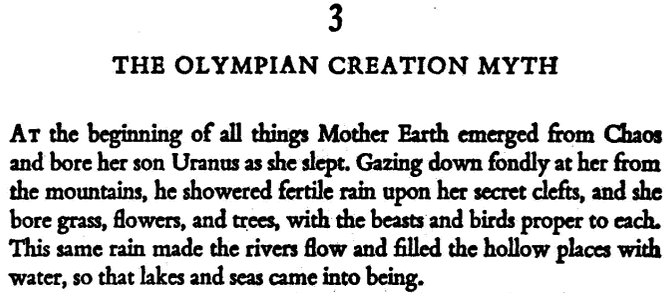
Graves’s purpose is to record and retell the classic Greek myths in the most original and accurate form possible. Scholars of mythology see the dozens of myths that he covers in his collection as some of the most accurate and well-developed representations of these ancient tales.
The most important representations of mythology in literature are found in Homer’s The Iliad ; which follows the king and warrior Odysseus through the Trojan War, and The Odyssey , which follows his journey home and his many encounters with mythological gods and creatures. The passage below describes Minerva, the Roman goddess of wisdom:
This said, her golden sandals to her feet She bound, ambrosial, which o’er all the earth And o’er the moist flood waft her fleet as air, Then, seizing her strong spear pointed with brass, In length and bulk, and weight a matchless beam, With which the Jove-born Goddess levels ranks Of Heroes, against whom her anger burns, From the Olympian summit down she flew, And on the threshold of Ulysses’ hall In Ithaca, and within his vestibule Apparent stood; there, grasping her bright spear[.]
Here, the goddess Minerva flies down from mythological Mount Olympus to the hall where the hero Ulysses rules. As can be seen, Homer draws from both Greek and Roman mythology in the development of both epics.
There are several noteworthy myths whose themes have been retold in varied ways across many cultures, predominantly the “creation myth” and the “flood myth,” which are popularly retold within the context of religion. A creation myth explains the creation of man, the universe, or some other element of life. A flood myth usually depicts a great flood sent by the gods to essentially destroy mankind, often as a form of punishment for forgetting the power and importance of divine rule. For example, the biblical story of Noah’s ark is a representation of the flood myth in Christianity, which is depicted below in a painting by Gustave Doré. Furthermore, most religions have a form of creation myth to explain the existence the universe and mankind.
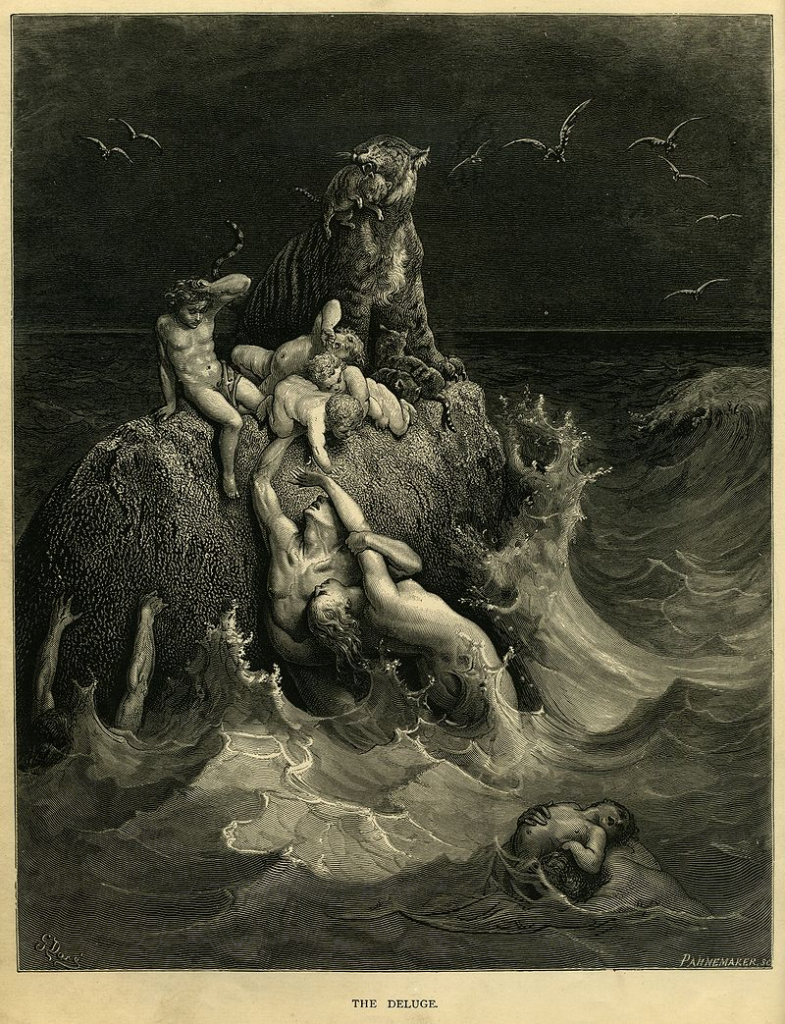
VI. Examples Myth in Pop Culture
The blockbuster film Troy is about the mythological heroes of Trojan War. Actor Brad Pitt plays the great Greek warrior and hero Achilles, who sails with the Spartan army for their attack on the city of Troy. In the clip below, he contemplates his part in the war with his mother Thetis; the goddess of water:
![examples of short myths stories Troy - Achilles and His Mother Thetis [1080p Blu-Ray] ᴴᴰ](https://i.ytimg.com/vi/NPezYaC_viE/0.jpg)
In this scene, Achilles is ultimately deciding his fate. He knows that if he goes to war he will never return; he also knows he has a significant part to play in it because he is a legendary warrior. For Achilles to fulfill his destiny he must die, and while he may be a hero with some superhuman qualities and godlike fighting abilities, he is ultimately a mortal man.
The Walt Disney Corporation is famous for retelling and adapting well known myths, legends , and fairy tales into family movies. For instance, the animated Disney film Hercules retells the ancient Greek myth of the hero Hercules (mentioned above) in a way that families can enjoy:

Adaptations like these are valuable form for the retelling of myths. Films like Disney classics let children enjoy bright and appealing stories about age-old characters and themes. By presenting the stories in a way that is popular and relevant, children are encouraged to learn about classics. While an animated Disney film is certainly not a completely accurate depiction of the myth of Hercules, it still introduces children to a classic story that is an important part of literary culture.
VII. Related Terms
Folktales are classic stories that have been passed down throughout a cultures oral and written tradition. They usually involve some elements of fantasy and explore popular questions of morality and right and wrong, oftentimes with a lesson to be learned at the end. The difference between folktales and myths is that myths once served as a culture’s belief system, while folktales are fundamentally a form of storytelling.
An epic is a legendary tale about a great hero on quest, usually with some form of divine intervention. Most epic tales employ some form of mythology in their storylines, but epics are not myths in themselves .
VIII. Conclusion
In conclusion, myths are legendary stories that have been a fundamental part of man’s culture, history, and even religion for thousands of years. They have been utilized, adapted, and retold by authors since the beginning of storytelling—in other words, for the majority of human existence.
List of Terms
- Alliteration
- Amplification
- Anachronism
- Anthropomorphism
- Antonomasia
- APA Citation
- Aposiopesis
- Autobiography
- Bildungsroman
- Characterization
- Circumlocution
- Cliffhanger
- Comic Relief
- Connotation
- Deus ex machina
- Deuteragonist
- Doppelganger
- Double Entendre
- Dramatic irony
- Equivocation
- Extended Metaphor
- Figures of Speech
- Flash-forward
- Foreshadowing
- Intertextuality
- Juxtaposition
- Literary Device
- Malapropism
- Onomatopoeia
- Parallelism
- Pathetic Fallacy
- Personification
- Point of View
- Polysyndeton
- Protagonist
- Red Herring
- Rhetorical Device
- Rhetorical Question
- Science Fiction
- Self-Fulfilling Prophecy
- Synesthesia
- Turning Point
- Understatement
- Urban Legend
- Verisimilitude
- Essay Guide
- Cite This Website
Greek Gods & Goddesses
Greek Myths, Stories and Legends
This section of the site covers some of the most popular Greek myths, legends and stories of ancient Greece.
Greek mythology is rich with stories of heroes and gods. One of the most famous stories is that of Orpheus , who traveled to the underworld to bring back his dead wife. He used his music to charm the spirits and won them over with his song.
Other famous Greek myths include works by Homer such as The Odyssey, in which Odysseus goes on a long journey home after battling monsters and gods, and The Iliad, in which Achilles fights against the Trojans in " The Trojan War ".
These ancient stories continue to fascinate us today, and they provide a window into the culture and beliefs of ancient Greece. They are also full of lessons about life and morality, and they offer insights into the human condition.
Whether you're looking for a good story to read or just want to learn more about Greek mythology, this section is a great place to start.
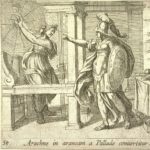
In Ancient Greek mythology, gods and goddesses regularly interacted with mere mortals. In most cases, the greek gods did acts that were worthy of praise and worship. However, some interactions highlighted the vindictive nature of the deities. Those cautionary tales served as warnings to Ancient Greeks while continuing to teach valuable lessons today. One notable […]
Argus Panoptes
Who is the Greek mythological creature Argus Panoptes? In ancient Greek mythology, Argus Panoptes is a giant who had many eyes. Some stories described him as having 100 eyes and it even created a saying. The saying “the eyes of Argus” refers to being watched closely or followed by the eyes. Panoptes also refers to […]
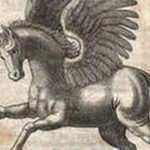
Arion was an ancient Greek mythical creature that took the form of a giant, extremely swift horse. Arion was endowed with both eternal life and the ability to speak. By some accounts Arion was born from a union of the Sea god Poseidon in the form of a stallion and the Earth goddess Demeter in […]
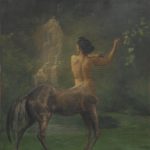
In Greek mythology, Centaurs (or Kentauroi) are half-man, half horse creatures that inhabited the mountains and forests of Thessaly. Centaurs were said to be primal, existing in tribes and making their homes in caves, hunting wild animals and arming themselves with rocks and tree branches.
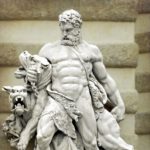
Cerberus: The three Headed Dog of Greek Mythology There are many unique creatures mentioned in Greek mythology. One of the most well known may be the three-headed dog known as Cerberus. It was the job of Cerberus to guard the entrance to Hades. In Greek mythology, this was the underworld where spirits of the dead […]
Ceryneian Hind
In the Greek Mythology, the Ceryneian Hind was an enormous female deer that was believed to have lived in the region of Keryneia. Based on various Greek tales, the Ceryneian Hind was considered sacred and was associated with the hunt goddess Artemis. A careful review of the Ceryneian Hind reveals that although the mythical creature […]

The most awe-inspiring elements of Greek mythology are, without a doubt, the ferocious beasts and monsters. These legendary creatures have inspired tales throughout history and continue to mystify fans of the mythos. Most are already familiar with the Cerberus, the Harpies, and the famous Gorgons. However, plenty of other monsters deserve their time in the […]
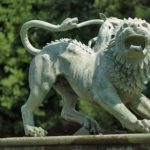
Chimaera (Chimera) – A Fire-Breathing Monster
Chimaera – more commonly known as Chimera – has become one of the most famous female monsters described in Greek mythology. An aura of mystery has always surrounded this creature. (Even today, the name “chimaera” sometimes refers to a genetic puzzle.) Greek sailors considered it a very bad omen to see Chimaera. She usually appeared […]
The Wisest Centaur Of all the centaurs in Greek mythology, Chiron was the most important. Like other centaurs, Chiron had the upper body of a man and the lower body of a horse. However, unlike the others, Chiron’s front legs were human. This unusual physical attribute made him easy to identify in art. It also […]
When one carefully scrutinizes the sheer volume of intricate cultural and mythological representations emerging from ancient cultures, the Greeks are of no exception. Known for their innumerable advancements in civilization, philosophy, art, literature, technology, and politics, the Greeks are still highly esteemed to this day. Perhaps most notable of the development of ancient Greek civilization […]
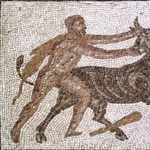
Cretan Bull
The island of Crete was the home of the legendary King Minos, who was said to have worshiped bulls. Poseidon, God of the Sea, gave King Minos a magical bull that rose from the sea. This is where the Cretan Bull myth begins. Poseidon gave Minos this bull on the condition that it was to […]
The Cyclopes were giant; one-eyed monsters; a wild race of lawless creatures who possess neither social manners nor fear of the Gods. Cyclopes means ‘round eye.’ Considered the sons of Uranus and Gaea they were the workmen of the God Hephaestus whose workshop was in the heart of the volcanic mountain Etna. Cyclopes Origins and […]
Delphyne is a female dragon born to Gaia, the Greek goddess of Earth. The name Delphyne means “womb” and related forms of the name, Delphyna (female) and Delphynes (male), were also used for the dragon of Delphi. There are different accounts of Delphyne in Greek mythology. Delphyne is sometimes called Python, a monster who lived […]
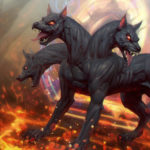
Dogs in Greek Mythology
Dogs have been featured prominently in Greek mythology, often acting as loyal companions to the gods and goddesses and even the mortal heroes too. Argus Unbeknownst to Odysseus as he left the defeated Troy for Ithaca, many obstacles such as Sirens, inebriated Cyclops, and furious gods awaited him. Most people of his hometown thought he […]

Echidna The She-Viper – Mother of Monsters Echidna is a somewhat obscure, but nevertheless fearsome monster in Greek mythology. Homer’s The Iliad and Hesiod’s poem Theogony are some of the oldest writings to feature her, and have therefore been influential in shaping Echidna’s modern narrative. Other than what is established in The Iliad, Theogony and […]
Erymanthian Boar
What Was the Erymanthian Boar? Put simply, the Erymanthian Boar was a massive feral pig. More specifically, the texts describe this creature as a shaggy, wild boar of immense weight with dangerous tusks attached to jaws that foamed with rage. While an enterprising individual might see the opportunity to use such a beast in an […]
Giants – Ancient Greek Mythical Creature
Greek mythology refers to the teachings of the ancient culture of the southern European nation of Greece, one of the world’s earliest recognized civilizations. Credited with introducing democracy, literature, philosophy, the dramatic arts, fundamental mathematical and scientific principles, as well as dozens of other significant contributions to modern civilization, Greece’s historical footprint is felt in […]
In Greek mythology, the Gorgon was first referred to by the poet Homer as a single monster who had risen from the underworld. The concept of the Gorgon is at least as old in mythology as Perseus and Zeus. The name is Greek, being derived from “gorgos” and translating as terrible or dreadful. Another Greek […]
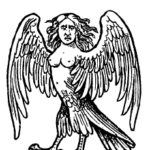
The Harpies were mythical monsters in Greek mythology that had the form of a bird with a human female face; often agents of punishment they abducted people and tortured them on their way to Hades’ domain, employed by the God as instruments for the punishment of the guilty. They stole food from their victims and […]
Hecatoncheires
Who are the Hecatoncheires creatures in Greek mythology? The battle between the Titans and the Olympians is one of the most pivotal moments in Greek mythology. It shaped Ancient Greeks’ lives and led to a wealth of captivating stories that continue to inspire works of art. While most are familiar with iconic figures like Zeus […]
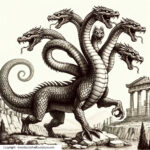
Hydra – The Lernean Hydra
In the realm of Greek mythology, where extraordinary heroes confront even more extraordinary beasts, the Lernaean Hydra, or Hydra of Lerna, stands out as one of the most formidable adversaries. More commonly referred to simply as the Hydra, this serpentine water monster is not just another creature of myth, but a symbol of resilience, regeneration, […]

Kraken – Fearsome Giant Sea Monster of Norse Legend
The Kraken is one of the most fearsome and famous legendary sea monsters to terrorize sailors on the high seas. This beast is often described as a gigantic cephalopod-like creature. It resembles an enormous octopus or giant squid with many strong tentacles. In some Scandinavian stories, the Kraken terrorizes ships and sailors, dragging crews to […]
Laelaps – The Hunting Dog
If you have an interest in Greek Mythology, you have probably read or heard about Laelaps, an ancient Greek mythical dog. Laelaps was a magical hunting dog that was destined to always catch its prey. There are no stories concerning Laelaps parentage, but there are some who suggest that it is the same dog that […]
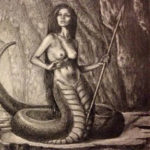
Lamia – The Child-Devouring Queen – Ancient Greek Creature – Monster
In many cultures around the world, old legends become cautionary tales. Eventually, they turn into metaphors and allegories used to frighten people into good behavior. There’s no more remarkable example of that than Lamia in Greek mythology. Ancient writers described Lamia, the daughter of Poseidon, as a ” queen of surpassing beauty.” It was her […]
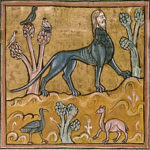
Mantikhoras
Greek mythology is full of legendary creatures that continue to inspire fiction today. From the famous Cerbeus guarding the gates to the Underworld to the ghastly Hecatoncheires of immortal lineage, these beasts frequently appeared throughout the mythos. Most served as obstacles for heroes and their tales of triumph. Others served as allegories to instill fear […]
The Story of Marsyas Marsyas was a Satyr, which in Greek mythology refers to a man with horse ears and a horsetail, who hailed from Phrygia. His role is deeply connected with music, which started the day he found an aulos, similar to a modern day flute. Athena had thrown that flute down to Earth. […]
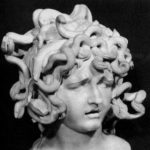
The Most Famous Monster Figure in Greek Mythology Greek Mythology is known for its many fearsome beasts such Mantikhoras and Cyclopes. One of the most popular monsters of Greek Mythology is Medusa. She was a beautiful maiden with golden hair. She vowed to be celibate her entire life as a priestess of Athena until she […]
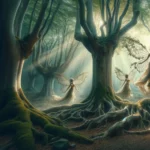
Meliae – Ash Tree Nymphs
Ash Tree Nymphs, also known as Meliae, were born from the blood of Uranus when he was castrated by his son, the Titan Cronus. The blood fell to the earth and impregnated Gaia (Earth), thus creating the Furies, the Giants, and the Meliae. The Meliae are specifically the nymphs that inhabit ash-trees. The ash tree […]
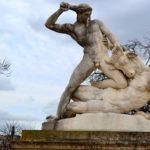
The tale of the Minotaur is one of the classics of Greek mythology and contains an extraordinary number of important elements. Characters like the brilliant Daedalus, strong Theseus, evil King Minos and his beautiful daughter Ariadne all make an appearance in this story. The concept of the labyrinth, or the endless underground maze, also originates […]

Mythical Sea Creatures
The Ancient Greeks were a creative people, and their mythology is filled with all sorts of amazing creatures. One of our favorites are the sea creatures from Greek mythology. These creatures were often used to explain natural phenomena, such as storms, tidal waves and earthquakes. Although many of these mythical sea creatures are considered evil, […]
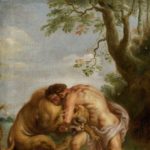
Nemean Lion
The Nemean Lion was a legendary monster in Greek mythology infamous for prowling and terrorizing the valley of Nemea. It was larger than any other lion and benefitted from fur thought to be impervious to human weapons, making it virtually unstoppable. Thanks to the lion’s appetite and lore, King Eurystheus made killing it the very […]
Who is the Greek Creature Nessus? In the world of Greek mythology, Nessus was one of the centaurs. A centaur was a half-man, half-horse creature. While the lower half of the body was a horse, it had a man’s torso in place of its neck, giving the creature a rare look. Nessus was part of […]
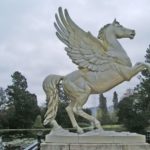
Pegasus is a mythological creature described as a beautiful, pure white stallion with wings. He was born from the blood of Medusa, a frightful Gorgon whose gaze could turn men to stone, when the hero Perseus decapitated her.
Polybotes were giant serpents who lived in the sea. He was a terrible monster that had some sort of magical power over the winds and seas. In this article, you will learn about the description of Polybotes and the things that he could do – the way he looked, how he behaved, and other useful […]
Cyclopes are the only beasts of the first creation that are not punished by Zeus when he overthrows his father, Cronus. This may have something to do with them being his nephews as sons of Poseidon, and no, there are no female cyclopes. They will eventually become favorites of the god, forgers of his thunderbolts, […]
The Creature Porphyrion in Greek Mythology The Porphyrion was first conceived by the Ancient Greeks as a giant. It has the ability to change its appearance, but it is always described as being of enormous stature. His name means “colored purple” or “purple-red”. According to legend, this creature would come before Uranus (the father of […]
Python – Ancient Greek Mythical Creature
What is the creature Python? Many people have heard of the Python snake. In Greek mythology, Python was also a tough serpent. It was also called a dragon by some people. Python was a child of Gaea who was “Mother Earth” in the mythology. The serpent was placed by Gaea as a guardian of Delphi. […]
There is no shortage of fantastic beasts in Greek mythology. Many recognizable monsters challenge famous figures like Odysseus, Heracles, and more. One monster that’s inspired creatures throughout history is Scylla. Scylla is a sea monster that guards one side of a narrow strait. While most versions leave the exact location up to interpretation, some say […]
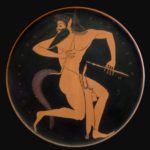
Silenus (Satyr)
Silenus (also known as Satyr) was the creature who raised and tutored the god Dionysus, the god of Wine and Fertility. After Dionysus was born, Zeus entrusted the infant Dionysus to Silenus’ care to be raised and taught. Once Dionysus grew to adulthood, Silenus was his companion along with his group of satyrs. Depictions of […]
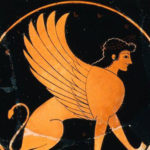
The Sphinx is arguably one of the world’s most well-known images. The creature is closely associated with Egypt, mostly due to the 5,000-year-old statue still standing tall guarding the Giza plateau to this day. However, this isn’t the only image of the Sphinx in ancient culture. The Greeks had their own Sphinx as well, and […]
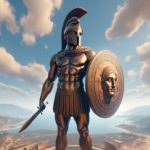
Emerging from the resonances of the industrious cultural developments of the Bronze Age, the Greek mythological creature Talos is the embodiment of a metallic automaton in humanoid form. In other words, Talos can loosely be equated to the representation of a bronze robot in Greek mythology. Culturally, the massive automaton symbolized the potential of human […]
Teumessian Fox
The Teumessian fox was a giant, man-eating fox that could not be caught by any captor. It was sent by the gods to punish the city of Thebes for a crime the people had committed. It preyed on their children, and eventually Amphitryon was tasked with finding a solution for the catching the impossible fox […]
The Phoenix – Mysterious Mythological Creature
The phoenix, or phenix, is a famous mythical bird. It is a sacred creature. A part of many cultures, different people know it by different names. Names of the phoenix The Greeks call it Phoenix; the Egyptians call it Bennu, and the Chinese call it Fêng-Huang. In Japan it’s named Ho-o, in Russia, it is […]
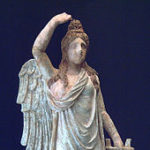
The Sirens were creatures that sang beautifully, luring those passing by to their deaths. The Sirens stand out as one of the most captivating and mysterious creatures in legend. These half-bird, half-woman entities are renowned for their irresistibly sweet melodies, which lure unsuspecting sailors towards perilous fates. The Sirens’ appearance has been a subject of […]
Aegis – Element of Godly Protection
In Greek mythology, the aegis was an item of protection used mainly by Zeus, the god of gods. It was either the hide (or skin) of an animal or a shield made from the skin of a goat, and it sometimes had the head of a Gorgon, a monster along the lines of Medusa. It […]
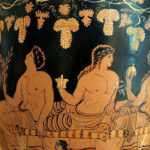
Ambrosia – Ancient Greek Mythical Element
Ambrosia has several different meanings in today’s world. Not only is it a dessert salad made of fruits and marshmallows, but it’s also a word used to describe delicious food. Ambrosia’s origins, however, are rooted in Greek mythology. Ambrosia: A Nymph That Turned Into Food According to Greek legend, in the beginning, Ambrosia was a […]
Ichor – Ancient Greek Element
While most ancient cultures were taught to fear their gods, the Greeks tried to make their gods relatable by giving them human-like qualities. People gave food and other items as offerings to a specific god for blessings, but the gods never ate the food given to them. The Greeks said the gods had their own […]
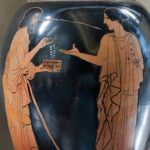
Necklace of Harmonia
The Necklace of Harmonia was an object that brought misfortune to most of its owners. It was originally a wedding gift from Hephaestus, the blacksmith god, to the goddess Harmonia for her wedding to the King of Thebes, Cadmus. Hephaestus had caught his wife Aphrodite having an affair with Ares, god of war. Hephaestus claimed […]
Nectar – Ancient Greek Element
In Ancient Greek Mythology, nectar is the drink of gods and goddesses who lived on Mount Olympus, the mythical home of many of the deities. The stories explain that Ancient Greek deities ate ambrosia and drank nectar with it, as their nourishment. The nectar of the gods was a drink with magical properties. Not only […]
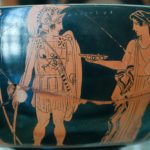
Shield of Achilles
The Shield of Achilles is referenced in Homer’s Iliad and was used by Achilles when he fought the Trojan prince Hector. The shield is best known for its intricate designs. During the Trojan War, Troy had gained the upper hand over Greece, and had begun to threaten Greek shipping. Patroclus, a close fiend and mentor […]
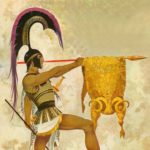
The Golden Fleece
The Golden Fleece is the fleece of a golden winged ram. The fleece resided in Colchis and was the object that Jason wanted as an order of King Pelias. To obtain it, he organized an expedition with the Argonauts. Athamas, a founder of Halos and king of Orchomenus, married the goddess of hospitality, Nephele. The […]
The Shirt of Nessus – Ancient Greek Mythological Element
In Greek mythology, the Shirt of Nessus was a mythological element associated with the hero Heracles. It was a poisoned shirt that was used to kill Heracles. The shirt originally belonged to the centaur named Nessus. Heracles, the son of Zeus and Alcmene, is often considered to be the greatest of the Greek heroes. Known […]
Cassandra was one of the most famous prophets in Greek mythology. She was known for her accurate predictions, but she was also cursed so that no one would ever believe her. Cassandra is a figure that is often associated with tragedy, and her story is one that is still remembered to this day. According to […]
Clytemnestra
Clytemnestra is one of the most infamous women in Greek mythology. She was the wife of Agamemnon, and she helped him murder her own father to gain power. When Agamemnon returned home from the Trojan War, Clytemnestra killed him and his concubine Cassandra. Clytemnestra was the offspring of Tyndareus and Leda, King and Queen of […]
Midas was a king who reigned in Macedonian Bromium in what is now modern day Turkey. The people he ruled over were called the Brigians or the Moschians. He was the son of the goddess Ida and an unnamed satyr and loved pleasure and wealth. When he was a baby, ants would climb up the […]
Medea is the daughter of King Aeetes of Colchis. She is a sorceress who marries the hero Jason. She is the title character of the play written by Euripides. Medea is an enchantress, and is sometimes seen as a priestess of the goddess Hecate. Medea saw Jason after he arrived from Iolcus to Colchis. Looking […]
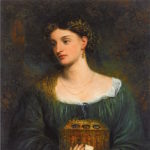
Many people are familiar with the concept of “opening Pandora’s box of trouble.” The common idiom means to do something that causes problems that did not exist before. While many have heard or even used this phrase before, few know the origins. Believe it or not, this phrase goes back to ancient Greek times! The […]
Sisyphus was the creator and first king of the city Ephyra (later Corinth). He married the nymph Merope and had four children: Glaucus, Ornytion, Almus and Thersander. Sisyphus helped his city become a commercial hub. He is also rumored to have created the Isthmian Games, a competition featuring athletic and musical feats. It was held […]
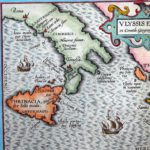
Aeaea – Ancient Greek Places
In ancient Greek mythology, Aeaea was an island that was home to the sorceress and goddess known as Circe. The island was also mentioned in Homer’s epic poem, The Odyssey, when one of the characters says that he spent a year there, lured by Circe, on his voyage back to his home in Ithaca. Odysseus, […]
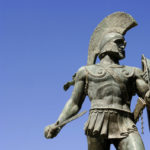
Ancient Sparta
Sparta was a city-state in ancient Greece, renowned for its military pre-eminence in the region. The entire city-state was organized to maximize its military capabilities. Given this reputation, Sparta led all of the combined Greek armies in the war against the Persians in the early 400s B.C. Sparta was unique for its militaristic society in […]
Arcadia – Ancient Greek Places
Arcadia is a place that is both a real geographical location, as well as a mythological place from Ancient Greek Mythology. The real Arcadia currently exists in the country of Greece, while the idea of the fictional, mythological Arcadia is coming from the time of history when Ancient Greek mythologies were born. It was and […]
Aulis – Ancient Greek Place
An ancient port-city in central Greece, Aulis held a strategically significant position in the region of Boeotia. Located directly opposite of the island of Euboea on the Euripus Strait, Aulis was never a fully independent polis, or city-state, but instead was under the sovereignty of the cities of Thebes and Tanagra. In Greek mythology, Aulis […]

Calydon – Ancient Greek Place
Calydon was ancient city located in Greece roughly seven miles west of the Evenus river and east of modern Mesolóngion. It is famous for hosting the Calydonian Boar, a beast from Greek mythology sent by Artemis to capture the land of Calydon because the king failed to honor the gods. The Calydonian Boar was quickly […]
Colchis – Ancient Greek Places
In ancient times, Colchis was a city in what is now the country of Georgia. It is located on the western side of the country. The city is also on the eastern border of the Black Sea. Colchis contained the fertile valleys along the Phasis River. Because of its fertile soils and mild climate that […]
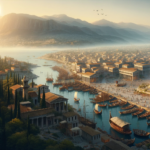
In ancient Greece, Corinth was a large city-state. It was located on a long stretch of land called an isthmus. The name of the isthmus that the city-state belonged to was also Corinth. Geographically, Corinth was located between Sparta and Athens, which were two important city-states in ancient Greece. They were also rival towns. Corinth […]
Crete – Ancient Greek Places
Crete is the biggest island of Greece and the whole Mediterranean world. With a rich history of over 9000 years total, it is one of the most important places of Ancient Greece. Crete was already inhabited by 7,000 BCE, but for the first few thousands of years, Cretans were most likely early farmers, forming villages […]
Delphi – Home to the Oracles of Ancient Greece
An advanced settlement and independent city-state, Delphi was the primary and most distinguished sacred site in Ancient Greece. Located in central Greece, Delphi was built atop of Mount Parnassos. Believed to have been designated the “center of the world” by Zeus, it was a considerably important place for the citizens of ancient Greece. Delphi had […]
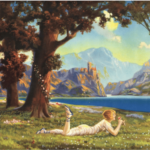
Most religions around the world have some form of afterlife. The standard conventions we know today separate the afterlife into two distinct realms: Heaven and hell. But in ancient Greece, those concepts did not exist. Religious ideologies were much different, and the people of antiquity believed in different realms for souls to reside. Elysium, also […]
Iolcus – Ancient Greek Places
Iolcus is an ancient Grecian city that was located in Magnesia. In modern times, the place is a village that used to be a municipality. It’s in the middle of Magnesia, somewhat north of the gulf. The overall land area of the place is 1,981 kilometers squared. In modern times, the municipality has been divided […]
Ithaca – Ancient Greek Places
Ithaca, also written as Ithaka, is a name for one of the Greek islands that belonged to the Ionian Sea. Ithaca Island is the second smallest island after Paxi. The island forms part of the separate regional units among the Greek Ionian Islands as part of the Ionian Islands region and the region’s only municipality. […]
Lerna – Ancient Greek Place
In ancient Greece Lerna stood in the northern part of the Greek Peloponnese, just a short distance south of Argos. This region of mountains and rocky cliff faces included some difficult to traverse terrain. The online encyclopedia Wikipedia reports in that era a large portion of the land outside Lerna fell within a region of […]

Lycia – Ancient Greek Places
Lycia is a city in the present-day southwestern part of Turkey. At the time that it was founded, the area where Lycia is located was called Anatolia. The alternative name for Lycia, which appears in some Greek myths, is “Lukka Lands.” The people who lived in Lycia in ancient times were linked to the Sea […]
Greek mythology is a collection of notable myths from the past that continue to inform current storytelling and truth in modern days. Its content is mysterious creatures, human beings of supernatural powers, and godly spirits that define reality. As a result, the characters at the center stage of these myths are held in high esteem, […]
Mount Olympus – Ancient Greek Places
Mount Olympus was the home and meeting place of all the gods and is an actual place in Greece. A visit to Mount Olympus will give a magnificent view since it is the tallest mountain in Greece. Mount Olympus in Greek mythology is a much different place than the one visited today. The actual Mount […]
Nemea – Ancient Greek Places
Nemea lies in a valley in the far northeastern region of the Greek Peloponnese, near Argolis. This location held great importance for people in the ancient world. They believed a number of significant events had occurred here. The Nemean Lion Legends in Greek mythology described a ferocious lion which resided in the vicinity of […]
Tauris is located in modern Crimea. While the Greeks had a colony there, the native people of the peninsula were rumored to be brutal savages. We hear about them most in the play Iphigenia in Tauris. During the play, Iphigenia, the daughter of a leader of the Trojan war named Agamemnon, was going to be […]
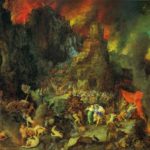
The Underworld – Ancient Greek Places
The Underworld was a place hidden deep underground where the souls of the dead went for eternity. It was ruled by Hades, the Greek god of the dead. Hades was said to be a greedy god, and his sole purpose was to collect souls for his kingdom and prevent them from ever leaving. The Underworld […]
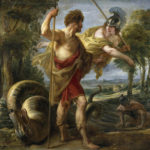
Located in the Boeotia region of central Greece, Thebes is a city steeped in the ancient Greek myths and its gods. The city, located 31 miles north of Athens, is situated on a plain bordered by the Cithaeron Mountains and Lake Yliki and is still populated today. Thebes has been central to the myths of […]
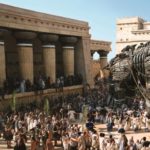
Troy is an ancient Greek city that was located in a region known as Asia Minor at the time of existence. Now, if Troy still existed, it would be located in Turkey south of the Dardanelles Strait. Troy was founded in 3000 BC and abandoned in 500 AD. Troy was the battleground in which the […]
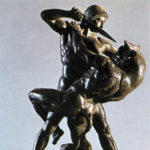
Adventures of Theseus
According to Greek mythology, Theseus was the son of Aethra, yet his father was unknown. At the time, Aethra supposedly had two suitors; King Aegeus of Athens, and Poseidon, God of the Sea. King Aegeus assumed the child was his own, and in the months preceding the birth of Theseus, he gave instructions to Aethra […]
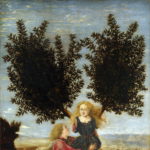
Apollo and Daphne
In Greek Mythology, Apollo was the God of Light. It was Apollo’s job to pull the sun across the sky in his 4-horse chariot every day. He has also been referred to as the God of music, poetry, art, medicine, knowledge, plague and archery. Apollo was the son of Zeus (the God of Thunder) and […]
Birth of Athena
In Greek mythology, Athena was the goddess of wisdom, courage, and justice. She was born from the head of her father Zeus, fully grown and dressed in armor. In this retelling of the myth, we will explore the story of Athena’s birth. Zeus’s first wife was the Oceanid Metis, and after they married, Metis became […]
Myths of the Constellations
Since the beginning of time man has looked up at the night sky and wondered about the stars. These points of light were once a mystery. Before man discovered all we know today about the stars and planets, they used the constellations to tell a story. Constellations are like a dot to dot puzzle. People […]
Odysseus and the Cyclops
Few tales are as well-known as the story of Odysseus and The Cyclops, Polyphemus. This classic Greek myth tells the story of a clever hero who uses his wits to outsmart a giant, one-eyed monster. Along the way, he also demonstrates the importance of friendship and loyalty. The story makes up one of the 24 […]
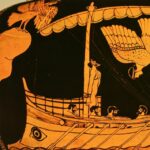
Odysseus and The Sirens
Homer’s tale, The Odyssey, is about Odysseus’ journey home after the Trojan War. It is likely that Homer wrote it during the second half of 8th Century BC because The Odyssey was popular throughout the Mediterranean region as Greek vases with scenes from the story depict. In Homer’s Odyssey, the hero Odysseus faces one of his greatest […]
Odysseus Journey Map
The Greeks celebrate their victory over Troy at the beginning of the Odyssey, forgetting that it was not their own strength that won the city, but rather the will of the gods. In light of this neglect to give credit where it is due, Athena and Poseidon become very angry. They begged Zeus to make […]
Pandora’s Box
The parable of Pandora is a classic tale in GREEK MYTHOLOGY. It’s a story that portrays the power of the gods and explains the purpose of evil in the world. It’s also notable for marking the end of the Golden Age of Man and causing a new era of human suffering. The tale begins with Zeus […]
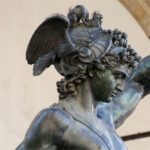
The Adventures of Perseus
Perseus' myths are full of gods, creatures, and monsters that you might see in a number of Hollywood movies and television shows. Even if Perseus' myth is a little on the simple side, it has still had a huge impact on Greek mythology.
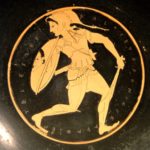
The Amazons
According to Greek Mythology, the Amazons were a tribe of entirely female warriors. It was believed that the Amazons lived in Themiscyra near the Black Sea. This area is now Turkey, Eastern Europe. The Amazons were famous for being all women and for hating men. No men were allowed to live alongside the Amazons. They […]
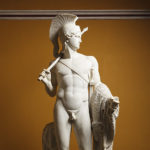
The Argonauts
The Argonauts were a band of heroes united in the common cause of taking the Golden Fleece from Colchis. This was a group of some of the most legendary heroes of all of Greek mythology, one of the few times in the myths where a group of heroes team up to accomplish a goal. The […]
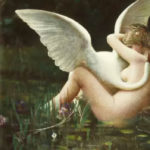
The Story of Leda & The Swan
Who Was Leda? Leda was a princess of King Thestius, also known as the name Thestias, until such time that she married off to Sparta’s King Tyndareus. Although she did not accomplish much in the grand scheme beyond her work as a mother, she was quite beautiful and her beauty is what brings her into […]
The Trojan War
The Mythical War of History: Everything You Need to Know About the Trojan War For thousands of years, the mythical Greek tale of the Trojan War has delighted and haunted readers with its epic characters and unbelievable twists and turns. The topic of Hollywood movies, such as the 1997 film Trojan War, the story has […]
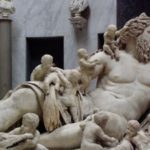
The birth or genealogy of the gods. Theogony literally means the “birth or genealogy of the gods.” It is the name of an epic poem by Hesiod, a Greek poet who is believed to have lived between 750 and 650 BC. He was thus a contemporary of Homer, the author of the “Iliad” and the […]
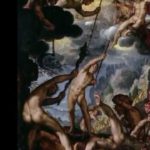
Titanomachy
The Wars between the Titans and Olympians The Titanomachy is a series of wars in Greek mythology. These wars took place in Thessaly, and were also called the War of the Titans, the Battle of the Titans, the Battle of the Gods or just the Titan War. These wars were between the Titans, the older […]
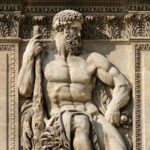
What are the 12 Labors of Hercules?
Most people know the story of Hercules (Heracles) and his twelve labors. These were tasks that he was charged with by King Eurystheus, which were meant to test his strength, courage, and perseverance. The labors were incredibly difficult, and many of them required Hercules to face off against some of the most fearsome creatures in […]

Greek Mythology, Stories & Myths
Greek mythology is a collection of stories and myths about the gods , goddesses, heroes , and monsters of ancient Greece. These stories have been passed down through generations and have become some of the most famous tales in all of history. Some of the most well-known Greek myths include the story of Demeter and Persephone, which explains the changing seasons; the legend of Achilles , which tells the story of the greatest warrior of his generation; and the tale of Odysseus and his ten-year journey home from Troy. Whether you're looking to learn more about Greek mythology or just enjoy a good story, these Greek myths are sure to entertain. So sit back, relax, and enjoy some of the greatest stories ever told.
Greek Creatures
Greek monsters, greek places, greek heroes, greek figures, greek myths & elements, greek myths.
- Argus Panoptes
- Bellerophon
- Crommyonian Sow
- Titanomachy
- Shield of achilles
- Helen of troy
- Hector of troy
- Penthesilea
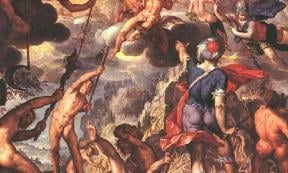
What Caused the War of the Titans in Greek Mythology? (Video)
- Read Later
- Read more about What Caused the War of the Titans in Greek Mythology? (Video)
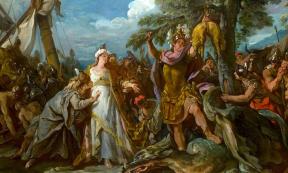
Jason and his Mythological Quest for the Legendary Golden Fleece
- Read more about Jason and his Mythological Quest for the Legendary Golden Fleece
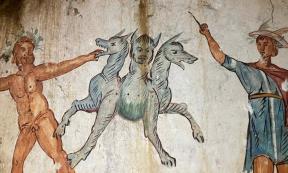
Unearthed 'Tomb of Cerberus' Features Pristine Frescoes from Ancient Roman Era
- Read more about Unearthed 'Tomb of Cerberus' Features Pristine Frescoes from Ancient Roman Era
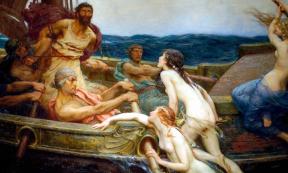
Seductive Sirens of Greek Mythology and How Heroes Resisted Them
- Read more about Seductive Sirens of Greek Mythology and How Heroes Resisted Them
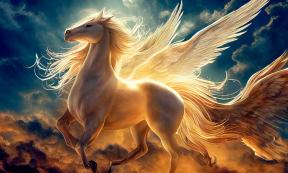
Pegasus of Greek Mythology: Majestic Winged Horse of Mount Olympus
- Read more about Pegasus of Greek Mythology: Majestic Winged Horse of Mount Olympus
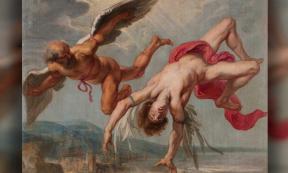
Dreams of Human-Powered Flight: Daedalus and the Story of Icarus
- Read more about Dreams of Human-Powered Flight: Daedalus and the Story of Icarus

Chiron, the Noble Elder Centaur of Greek Mythology
- Read more about Chiron, the Noble Elder Centaur of Greek Mythology
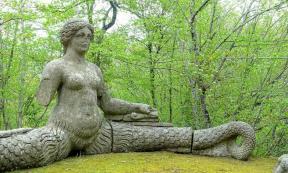
Typhon and Echidna: Monster Makers of Greek Mythology
- Read more about Typhon and Echidna: Monster Makers of Greek Mythology
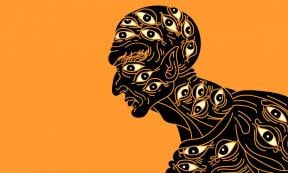
Argos Panoptes – The All-Seeing Giant of Greek Mythology
- Read more about Argos Panoptes – The All-Seeing Giant of Greek Mythology
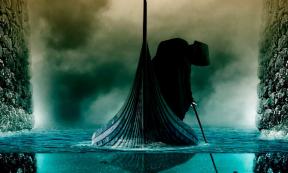
Dark Sketches & Stories from the Underworld in Greek Mythology
- Read more about Dark Sketches & Stories from the Underworld in Greek Mythology

The Lamia of Ancient Greek Mythology: The Original Bogeyman
- Read more about The Lamia of Ancient Greek Mythology: The Original Bogeyman

Myth of the Minotaur: The Making of a Monster
- Read more about Myth of the Minotaur: The Making of a Monster
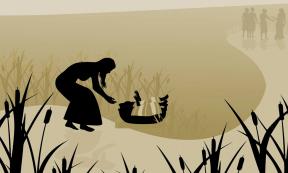
Romulus and Remus, Osiris and Moses: Are the Storytelling Similarities a Mere Coincidence?
- Read more about Romulus and Remus, Osiris and Moses: Are the Storytelling Similarities a Mere Coincidence?

Mythological Bridge of Scylla & Charybdis Would Unite Italy with Sicily
- Read more about Mythological Bridge of Scylla & Charybdis Would Unite Italy with Sicily
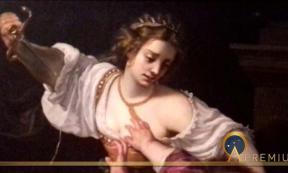
Medea, Murderous Mother or Defiant Defender of the Oikos?
- Read more about Medea, Murderous Mother or Defiant Defender of the Oikos?
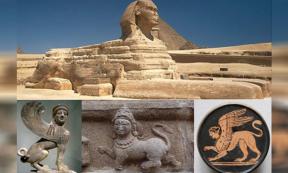
There Is More to the Sphinx Than You Find at Giza
- Read more about There Is More to the Sphinx Than You Find at Giza
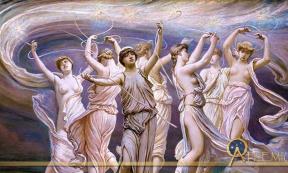
From the Ancient Greek Pleiades to the Hindu Matrikas: Mother Goddesses, Music and the Sacred Number 7
- Read more about From the Ancient Greek Pleiades to the Hindu Matrikas: Mother Goddesses, Music and the Sacred Number 7
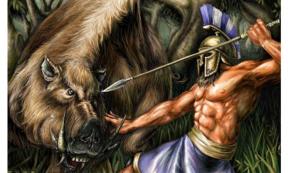
A Man-Eating Hog? Meet the Crommyonian Sow
- Read more about A Man-Eating Hog? Meet the Crommyonian Sow
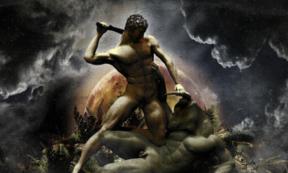
Theseus: The Greek Hero That Slayed the Minotaur
- Read more about Theseus: The Greek Hero That Slayed the Minotaur
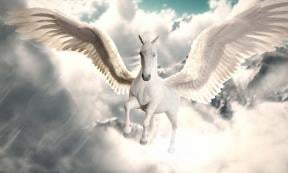
Eight Legendary Creatures from Greek Mythology That You Might Not Know About
- Read more about Eight Legendary Creatures from Greek Mythology That You Might Not Know About
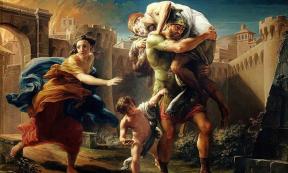
History Versus Legend: In Search of Aeneas, the Trojan Refugee
- Read more about History Versus Legend: In Search of Aeneas, the Trojan Refugee
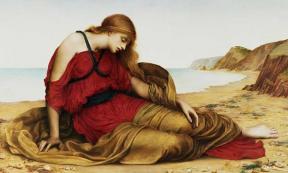
The Descent of Ariadne: Minoan Queen of the Dead to Mistress of the Labyrinth?
- Read more about The Descent of Ariadne: Minoan Queen of the Dead to Mistress of the Labyrinth?

Pandora: Unleashing Hell and Hope Upon Humanity
- Read more about Pandora: Unleashing Hell and Hope Upon Humanity
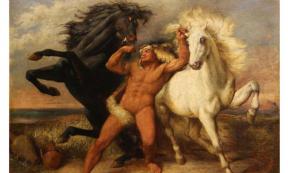
Heracles and the Mares of Diomedes: Greek Hero VS Man-Eating Beasts
- Read more about Heracles and the Mares of Diomedes: Greek Hero VS Man-Eating Beasts
Literary Devices
Literary devices, terms, and elements, definition of myth.
A myth is a story that comes from an ancient culture and often includes supernatural elements. These elements may be anything from talking animals to people with superhuman powers to the interference of gods and goddesses in human affairs. Myths traditionally were created to explain the origins of the world or of belief systems, practices, or natural occurrences in the location of that culture. Most myths are set in a time before recorded history or exist somehow outside of time (e.g., “once upon a time” is a frequent opening line for myths in that it indicates a distant past without specifying when that past could have occurred). Though myths do not necessarily contain any “truth,” they often display the biases and values of the culture from which the myth came.
The word myth comes from the Greek word μῦθος ( mythos ), which means “story.” Due to the fact that there are aspects of myths that are hard to believe, the definition of myth has also grown to incorporate statements or belief systems that are not true (e.g., the myth of the American dream).
Difference Between Myth and Legend
There is much overlap between stories that can be considered myths and those that are legends. The main distinction is that a legend is a semi-true story that is based at least partially in real historical events. Legends are passed down from generation to generation, and, in the process, events may become distorted, exaggerated, and/or made supernatural. Myths are similar in that they are passed down from one generation to the next, but are not necessarily based in historical events. In a myth, the symbolism of the events in the story is more important than the events themselves.
Common Examples of Myth
There are many myths that are popular enough to be a part of cultural knowledge. Here are some examples of myths that are well-known:
- Icarus flying too close to the sun until his wax wings melted and he crashed into the sea.
- The Tower of Babel being created that led to the proliferation of different languages among humans.
- A great flood wiping all most or all of the humans at the time (prevalent in creation myths from around the world).
Significance of Myth in Literature
Most cultures had origin myths, which is to say, an explanatory story for how the world was formed, and how humans came into being. These are called either “creation myths” or “cosmogonical myths.” Many myths that formed alongside early civilizations have survived for thousands of years and remained a part of different cultural consciousnesses, informing our habits and understanding of morals and values. Myths are also very popular to be rewritten by authors over the centuries, who either choose to update them or reimagine the original story in a different way. Some authors also create their own sense of mythology in their writing in order to make their works of literature seem that much more profound and timeless.
Examples of Myth in Literature
My soul would sing of metamorphoses. But since, o gods, you were the source of these bodies becoming other bodies, breathe your breath into my book of changes: may the song I sing be seamless as its way weaves from the world’s beginning to our day.
( Metamorphoses by Ovid)
Ovid’s masterpiece Metamorphoses is an excellent example of myth and the way that Ancient Greek writers believed in the power of myth. He chronicles the mythological origin of the world up to the time of Julius Caesar. The above excerpt is the opening stanza of the first poem, and already we can see the presence of the supernatural in the poet’s proclamation that the gods “were the source of these bodies becoming other bodies.” There is an interesting mixture of historical fact and myth in Ovid’s Metamorphoses that represents the way that Ancient Greeks took myths to be true.
So times were pleasant for the people there Until finally one, a fiend out of Hell, Began to work his evil in the world. Grendel was the name of this grim demon Haunting the marches, marauding round the heath And the desolate fens; he had dwelt for a time In misery among the banished monsters, Cain’s clan, whom the creator had outlawed And condemned as outcasts. For the killing of Abel The Eternal Lord had exacted a price: Cain got no good from committing that murder Because the Almighty made him anathema And out of the curse of his exile there sprang Ogres and elves and evil phantoms And the giants too who strove with God Time and again until He gave them their final reward.
( Beowulf , translated by Seamus Heaney)
The Old English poem Beowulf mixes the Biblical story of Cain and Abel with a modern present danger for the people who were listening to and telling the store of Grendel. Grendel is a mythological creature, “a fiend out of Hell,” who terrorizes the Anglo-Saxons in what is present-day Scandinavia. This is an interesting myth example that combines a much older story with a newer (at the time) mythological being.
THESEUS: [Reads] ‘The battle with the Centaurs, to be sung By an Athenian eunuch to the harp.’ We’ll none of that: that have I told my love, In glory of my kinsman Hercules. [Reads] ’The riot of the tipsy Bacchanals, Tearing the Thracian singer in their rage.’ That is an old device; and it was play’d When I from Thebes came last a conqueror. [Reads] ’The thrice three Muses mourning for the death Of Learning, late deceased in beggary.’ That is some satire , keen and critical, Not sorting with a nuptial ceremony. [Reads] ’A tedious brief scene of young Pyramus And his love Thisbe; very tragical mirth.’ Merry and tragical! tedious and brief! That is, hot ice and wondrous strange snow. How shall we find the concord of this discord?
( A Midsummer Night’s Dream by William Shakespeare)
William Shakespeare had a deep knowledge of Greek mythology, and there are numerous allusion examples to Greek figures and stories in myth. In his comedy A Midsummer Night’s Dream the character of Theseus shares a name with a Greek mythological figure. In this scene, Theseus is choosing which play he wants a nomadic theater company to perform; each scene has its origins in Greek mythology. There are clear allusions to Ovid’s Metamorphoses in the stories retold, but also in the theme of transformation that runs throughout Shakespeare’s play.
Many years later, as he faced the firing squad, Colonel Aureliano Buendía was to remember that distant afternoon when his father took him to discover ice. At that time Macondo was a village of twenty adobe houses, built on the bank of a river of clear water that ran along a bed of polished stones, which were white and enormous, like prehistoric eggs. The world was so recent that many things lacked names, and in order to indicate them it was necessary to point.
( One Hundred Years of Solitude by Gabriel García Márquez)
Gabriel García Márquez’s twentieth-century novel One Hundred Years of Solitude is an example of a contemporary author creating myths of his own in order to give more credence to the world in his novel. There are numerous supernatural events that occur in this novel, and García Márquez sets up expectations of the supernatural and mythological by starting his novel with a mini origin story. The town of Macondo somehow exists in such a recent world that “many things lacked names.” The mythological atmosphere of the first paragraph of the novel continues to influence the rest of the narrative .
Test Your Knowledge of Myth
1. Which of the following statements is the best myth definition? A. A traditional story that often explains how things came to be, whether that’s a people, cultural practice, or belief system. B. A story which has absolutely no truth in it. C. A retelling of historical events in a supernatural way.
2. Which of the following statements explains the difference between myths and legends? A. Legends never contain supernatural elements, while myths always do. B. Legends are based at least partly on some historical event, while myths do not necessarily have any historical basis. C. Legends are passed down through the generations, while myths generally die out when a culture changes.
3. Which of the following statements is true? A. Myths can no longer be created by contemporary authors. B. People who told myths didn’t believe that they were actually true. C. Myths from thousands of years ago are still told and retold and have cultural relevance.

Spirit Storybooks: Three Traditional Tales from Around the World
Three traditional stories about Spirit from around the world.

The Stones of Five Colours and the Empress Jokwa
A story of the Sun, the Moon and an Empress all working together for peace.

The Kingdom of the Ogres
A family of human-ogres shows strength in the difficulties they face being both.
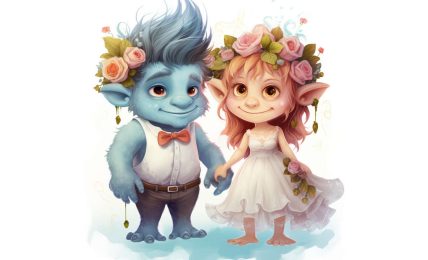
The Troll Wedding
It all seems like a perfectly normal wedding... or is it?!
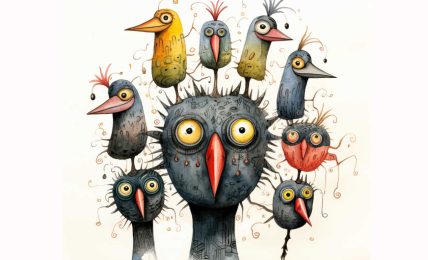
The Bird with Nine Heads
When the king's daughter is taken by a bird with nine heads, who will save her?
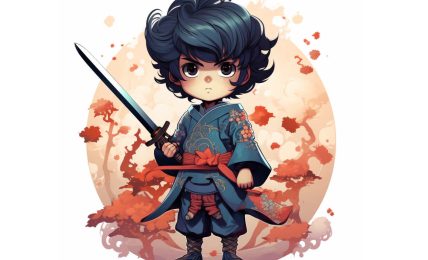
Prince Yamato Take
The story of Prince Yamato Take and his protector the Sun Goddess.

How The Children Became Stars
A multi-cultural collection of children's myths and legends from all over the world.
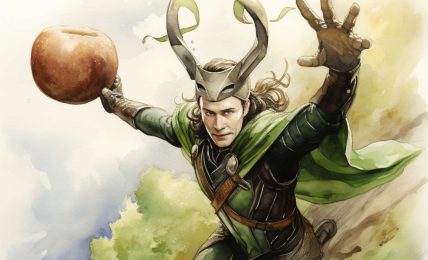
The Apples of Idun – A Tale of Odin and Loki
Loki, in a temper, must steal the goddess Idun and her apples. But where will the poetry go?

The Maiden Who Loved A Fish
An ugly maiden with a beautiful voice makes a trout fall in love with her.
- Classic Authors
- Myths & World
- Educational
- Poems & Music
Ancient Egyptian Stories

The oldest are the best. You may not have heard these fairy tales before, but they have some very familiar themes.
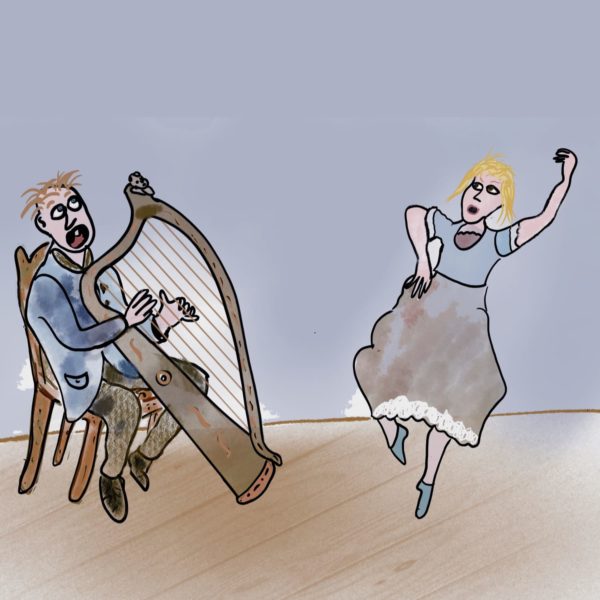
Indian Stories

Greek Myths
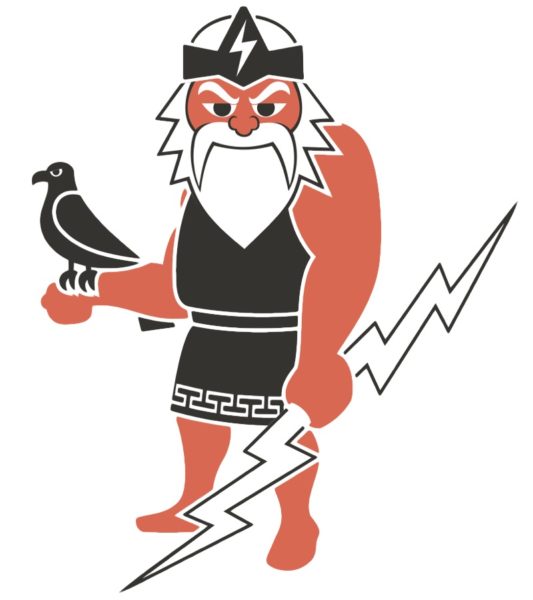
French Stories
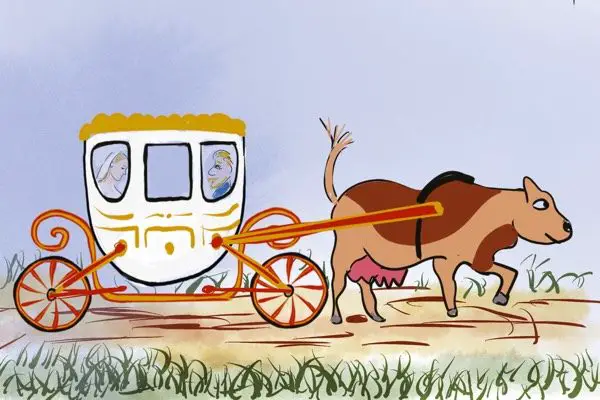
Vietnamese Stories
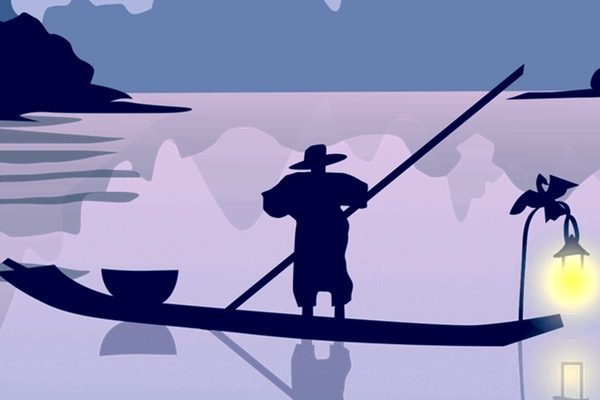
Norse Myths
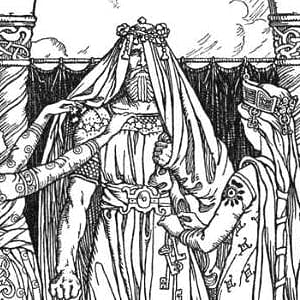
Russian Stories
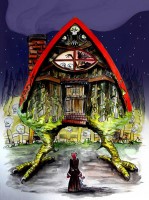
Chinese Stories

Irish Stories
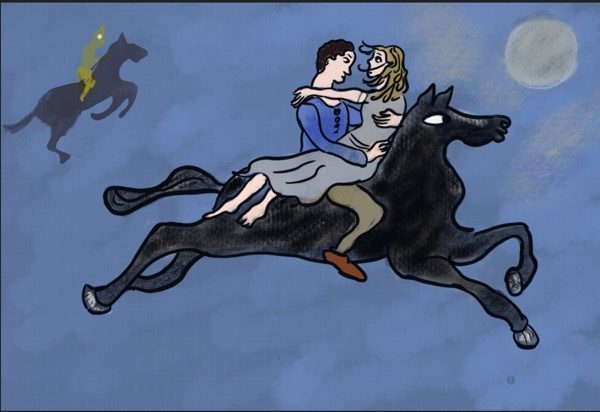
Japanese-stories
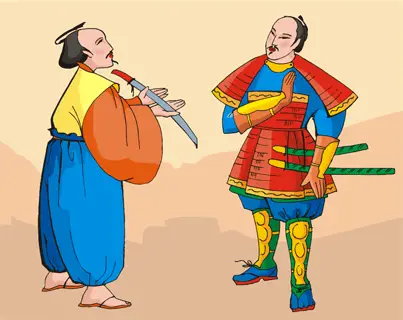
English Stories

- History Classics
- Your Profile
- Find History on Facebook (Opens in a new window)
- Find History on Twitter (Opens in a new window)
- Find History on YouTube (Opens in a new window)
- Find History on Instagram (Opens in a new window)
- Find History on TikTok (Opens in a new window)
- This Day In History
- History Podcasts
- History Vault
Greek Mythology
By: History.com Editors
Updated: August 15, 2023 | Original: December 2, 2009

Ancient Greek mythology is a vast group of legends about gods and goddesses, heroes and monsters, warriors and fools, that were an important part of everyday life in the ancient world. Greek myths explained everything from religious rituals to the weather, and gave meaning to the world that people saw around them. While many of these myths are fanciful tales, such as the legends of greedy King Midas or heroic Hercules, other stories like the Trojan War epic have a basis in historical fact.
Sources of Greek Mythology
There is no single original text, like the Christian Bible or the Hindu Vedas, that introduces all Greek myths’ characters and stories. Instead, the earliest Greek myths were part of an oral tradition that began in the Bronze Age , and their plots and themes unfolded gradually in the written literature of the archaic and classical periods of the ancient Mediterranean world.
The poet Homer ’s 8th-century BC epics, The Iliad and The Odyssey , for example, tell the story of the Trojan War as a divine conflict as well as a human one. They do not, however, bother to introduce the gods and goddesses who are their main characters, since readers and listeners would already have been familiar with them.
Around 700 BC, the poet Hesiod’s Theogony offered the first written cosmogony, or origin story, of Greek mythology. The Theogony tells the story of the universe’s journey from nothingness (Chaos, a primeval void) into being, and details an elaborate family tree of elements, gods and goddesses who evolved from Chaos and descended from Gaia (Earth), Ouranos (Sky), Pontos (Sea) and Tartaros (the Underworld).
Later Greek writers and artists used and elaborated upon these sources in their own work. For instance, mythological figures and events appear in the 5th-century plays of Aeschylus, Sophocles and Euripides and the lyric poems of Pindar. Writers such as the 2nd-century BC Greek mythographer Apollodorus of Athens and the 1st-century BC Roman historian Gaius Julius Hyginus compiled the ancient myths and legends for contemporary audiences.
Did you know? Many consumer products get their names from Greek mythology. Nike sneakers are the namesake of the goddess of victory, for example, and the website Amazon.com is named after the race of mythical female warriors. Many high school, college and professional sports teams (Titans, Spartans and Trojans, for instance) also get their names from mythological sources.
Greek Gods and Goddesses
At the center of Greek mythology is the pantheon of gods and goddesses who were said to live on Mount Olympus, the highest mountain in Greece. From their lofty perch, they ruled every aspect of human life. Olympian deities looked like men and women (though they could change themselves into animals and other things) and were — as many myths recounted — vulnerable to human foibles and passions..
The twelve main Olympians are:
- Zeus (Jupiter, in Roman mythology): the king of all the gods (and father to many) and god of weather, law and fate
- Hera (Juno): the queen of the gods and goddess of women and marriage
- Aphrodite (Venus): goddess of beauty and love
- Apollo (Apollo): god of prophesy, music and poetry and knowledge
- Ares (Mars): god of war
- Artemis (Diana): goddess of hunting, animals and childbirth
- Athena (Minerva): goddess of wisdom and defense
- Demeter (Ceres): goddess of agriculture and grain
- Dionysus (Bacchus): god of wine, pleasure and festivity
- Hephaestus (Vulcan): god of fire, metalworking and sculpture
- Hermes (Mercury): god of travel, hospitality and trade and Zeus’s personal messenger
- Poseidon (Neptune): god of the sea
Other gods and goddesses sometimes included in the roster of Olympians are:
- Hades (Pluto): god of the underworld
- Hestia (Vesta): goddess of home and family
- Eros (Cupid): god of sex and minion to Aphrodite
Greek Mythology: Heroes and Monsters
Greek mythology does not just tell the stories of gods and goddesses, however. Human heroes — including Heracles (aka Hercules), the adventurer who performed 12 impossible labors for King Eurystheus (and was subsequently worshipped as a god for his accomplishment); Pandora, the first woman, whose curiosity brought evil to mankind; Pygmalion, the king who fell in love with an ivory statue; Arachne, the weaver who was turned into a spider for her arrogance; handsome Trojan prince Ganymede who became the cupbearer for the gods; Midas, the king with the golden touch; Narcissus, the young man who fell in love with his own reflection; and Kratos, a god of strength and power—are just as significant.
Monsters and “hybrids” (human-animal forms) also feature prominently in the tales: the winged horse Pegasus, the horse-man Centaur, the lion-woman Sphinx and the bird-woman Harpies, the one-eyed giant Cyclops, automatons (metal creatures given life by Hephaestus), manticores and unicorns, Gorgons, pygmies, minotaurs, satyrs and dragons of all sorts. Many of these creatures have become almost as well known as the gods, goddesses and heroes who share their stories.
The Legacy of Greek Myths
The characters, stories, themes and lessons of Greek mythology have shaped art and literature for thousands of years. They appear in Renaissance paintings such as Botticelli ’s Birth of Venus and Raphael ’s Triumph of Galatea and writings like Dante ’s Inferno ; Romantic poetry and libretti; and scores of more recent novels, plays and movies. Much of the mythology was recorded in D'Aulaires' Book of Greek Myths , published in 1962 and still in print today.

HISTORY Vault: Clash of the Gods
Discover the history behind myths and legends.

Sign up for Inside History
Get HISTORY’s most fascinating stories delivered to your inbox three times a week.
By submitting your information, you agree to receive emails from HISTORY and A+E Networks. You can opt out at any time. You must be 16 years or older and a resident of the United States.
More details : Privacy Notice | Terms of Use | Contact Us

- DIGITAL MAGAZINE
MOST POPULAR
5 terrifying tales from Greek mythology
Meet the mythical monsters from ancient greece.
Check out these ghastly Greek myths from the time of the Ancient Greeks ! Read on, if you dare…
Greek ‘myths’ (short for mythology) are a series of stories about the Gods and magical beings of Greece. We’ll bet you’ve heard of some of the famous – and infamous! – characters already, such as Heracles , (the strongest man on Earth) Zeus , (the God of the sky and king of the gods) Pegasus (a flying horse) and Hades (the god of the underworld).
Find out more about the grand Greek myths, below!
Greek mythology
Created thousands of years ago, Greek myths were epic stories about Greek gods , passed down over generations. They often feature heroic battles and terrible creatures, and taught the importance of bravery, intelligence, and right and wrong. They showed that even the gods, like mortal men, could be punished or rewarded for their actions. Details of the ancient tales have been found on everything from pottery to temples to stone statues!
Greek myths were a huge part of the religion in Ancient Greece, and offer a glimpse into the lives of the ancient people who told them. Check out five of these fascinating Greek myths below, and meet the people-eating, fire-breathing beasts and the heroes who battled them!
Scylla and Charybdis
The Monster: Scylla and Charybdis The Hero: Odysseus The Battle: On both sides of a narrow stretch of sea, monsters lie in wait. On one side, Scylla thrashes around her six snakelike heads , ready to crunch on passing sailors. On the other, Charybdis creates a deadly whirlpool . No person has ever faced these beasts and escaped unharmed. Now the king, Odysseus , and his crew must pass them to get home. They edge around Charybdis’ spiralling sea, saving the ship from being swallowed whole. But Scylla swoops down and gobbles up six men. “Row!” Odysseus shouts, leading the rest of the crew past Scylla and out of the deadly channel. Having survived the dreaded beasts, Odysseus and his men continue their journey.
Did you know we have a FREE downloadable Greek Mythology primary resource ? Great for teachers, homeschoolers and parents alike!
Theseus and the Minotaur
The Monster : The Minotaur The Hero : Theseus The Battle : Half-man, half-bull, the Minotaur lurks in an underground maze waiting for his next meal – children sent to him as a sacrifice. Lost in the labyrinth, the kids surely will be devoured. But brave king Theseus has had enough of his land living in fear of the Minotaur. He accompanies the group and is prepared to fight. Hearing the Minotaur breathing nearby, he springs toward it. Dodging the monster’s deadly horns, he thrusts his sword into the beast. The Minotaur is dead, but will the group find its way out? Luckily, Theseus unspooled a piece of string as he walked through the maze, and leads the children out to safety.
The Labours of Heracles
The Monster : The Hydra The Hero : Heracles The Battle : In a swamp creeps a deadly nine-headed serpent called the Hydra . Killing it is one of 12 tasks Heracles – the son of Greek god, Zeus – must complete to become immortal. After throwing flaming spears at the beast, the Hydra attacks so Heracles hits its heads with a club, but more grow in their place! Heracles’ friend, Iolus , then leaps to his aid with a flaming torch. After an epic battle, the men finally destroy the Hydra!
Perseus and Medusa
The Monster : Medusa The Hero : Perseus The Battle : The hideous Medusa has snakes for hair, terrifying tusks and a face that turns anyone that looks at it into stone! To please his king, warrior Perseus agrees to slay the beast. Wearing a helmet of invisibility, he sneaks up on Medusa. She’s asleep, but one gaze at her face and Perseus would be a statue! So he looks at her harmless reflection in his shiny shield and beheads her. Victorious, Perseus flies off on winged sandals.
Bellerophon and Pegasus
The Monster : The Chimera The Hero : Bellerophon The Battle : The fire-breathing Chimera is a terrifying beast with a serpent for a tail, a goat’s body and a lion’s head! A king has commanded warrior, Bellerophon , to destroy her. Soaring above the monster on a winged horse, Pegasus, he shoots arrows at her. Bellerophon then attaches lead to his spear and thrusts it into the vicious beast. The hero’s actions kills the fiery Chimera.
Read more about amazing ancient adventures in National Geographic Treasury of Greek Mythology .
Did you know we have a FREE downloadable primary resource about the Lost City of Atlantis ? Perfect for teachers, homeschoolers and parents alike, the resource investigates the legendary Ancient Greek island swallowed by the sea!
Illustrations: Ben Shannon
What do you make of our greek myths let us know by leaving a comment, below, leave a comment.
Your comment will be checked and approved shortly.
WELL DONE, YOUR COMMENT HAS BEEN ADDED!
It is not scary for kids 4 and above as my sister is 4 and she is NOT afraid. And more stories can be added. But overall it is great
Interesting
The coolest myths EVER!!!!!!!
coooooooooooooool
I love Greek myths
That was awesome
this was sooo terrifying( i'm being sarcastic)
You should leave the author and date it was published on the bottom of the page
amazing info, thanks so much
IT was not even scary i bet a baby would not even be scared of the myths. Ha HA ha
Maybe it isnt the worst site, you just DEFINITELY knew it all. I LOVE this site thanks for the facts.
i love this
Greek myth are amazing
I never gonna believe this you did the best job ever
This was really interesting
Pretty interesting
This isn't that accurate but useful nonetheless
amazing content and a very good learning website
eh ok... :/
omg i love this
cooool epic awesome mythic
This is awesome. really helps me learn my stuff. My favourite is medusa and thesus
AAAARRRRRRRRRRRRGGGHHHHHHH!! Those myths are so scary.
i realllllly want more
it was brilliant
This is Fantastic
my favorite story was probably the half bull half human one. very creepy:)
This website is very useful
I love Ancient Greece.
i have a weird username. this is not like my username
VIDEO GAME!!!!!
thes storys are cool
the chimira was the best in my opinyon
Everything Is Awesome
i love the chimera and the minotaur better
yah totally radical uuuuddeeee wessssssllyyyy
This is so helpful school is had some times and this web site help a lot.
OMG! This totes saved my school work and my lesson so thx
This website is awsome
I am doing a project on ancient Greece and your website has been very helpful
worst site i did not learn any thing
This is baws
Now I know some facts for my project thanks
Not helpful
Amazing!!!!!!!!!!!!!!!!!!!!!!!!!!!!!!!!!!
so awesome!!!!
SOOOOOOOOO TOOOOOTAALLLYYYY #RADD BRO!!!!!!!!!!!!!!!!!!!!!!!!!!!!!!!!!!!!!!!!!!!!!!!!!!!!!!!!!!!!!!!!!!!!!!!!!!!!!!!!!!!!!!!!!!!!!!!!!!!!!!!!!!!!!!!!!!!!!!!!!!!!!!!!!!!!!!!!!!!!!!!!!!!!!!!!!!!!!!!!!!!!!!!!!!!!!!!!!!!!!!!!!!!!!!!!!!!!!!!!!!!!! :) :) :) ;)
GET TO THE CHOPPER
Cant wait for more
LOL LOL LOL
soooooooooooo cool!
lolololllloolololololololololololo
ok that was good
Coooooooollll
wow now thats what im talking about
cool asome 9ufhberigvreo
LAND SHARKS ARE ATTACKING THE USA
jrhgieu g fjn fh f b v fv vn v
somarahhaushdsgyfedsyfgydgyg
relly rayray123
bhfgvyrfgyrgr
ftfgfjggyghgt
fhhdgdghdghd
i love medusa
ReyRey123 redy for my brthday
you are a chikn
i loved the story on madousa i never knew she had tusks so cool
heyyyyyyyyyyyyyyyyyyyyyyyyyyyyyyyyyyyyyyyyyyyyyahhhhhhhhhhh
this is cool
Weydens hearrrrrrrrrrrrrrrrrrrrrrrrrrrrrrrrrrrrrrrrrrrrrrrrrr
nooooooooooooooooooo
hiiiiiiiiiiiiiiiiiiiiiiiiiiiiiiiiiiiiiiiiiiiiiiiiiiiiiiiiiiiiiiiiiiiiiiiiiiiiiiiiiiiiiiiiiiiiiiiiiiiiiiiiiiiiiiiiiiiiiiiiiiiiiiiiiiiiiiiiiiiiiiiiiiiiiiiiiiiiiiiiiiiiiiiiiiiiiiiiiiiiiiiiiiiiiiiiiiiiiiiiiiiiiiiiiiiiiiiiiiiiiiiiiiiiiiiiiiiiiiiiiiiiiiiiiiiiii
i didnt know that madusa had tusks
hi ReyRey123
love my team
hihihihihihihihihihihihihihihihihhihihihihihihi
OMGgggggggggggggggggggggggggggggggggggggggggggggggggggggggggggggggggggggggggggggggggggggggggggggggggggggggggggggggggggggggggggggggggggggggggggggggggggggggggggggggggggggg
i love this websit
hi cathrine
cccccccccccccccccccccccoooooooooooooooooolllllllllllllllllllllllll
How do you guys do that thingy mugiger
bhvxugchjb lciuhiucsyigcckcyuytchjlccyfghxjhcxhuuyd9ysdudjzxusuuuuussoisiixzjlkjx.,cmj.kuyvcccccyyyyyyyyyyyyyyyyyyyyyyyyyyyyyyyyyyyyyyyyyyyyyyyyyyyyyyyyyyyyyyyyyyyyyyyyyyyyyyyyyyyyyyyyyyyyyyyyyyyyyyyyyyyyyyyyyyyyyyyyyyyyyyyyyyyyyyyyyyyyyyyyyyyyyyyyyyyyyyyyyyyyyyyyyyyyyyyyyyyyyyyyyyyyyyyyyyyyyyyyyyyyyyyyyyyyyyyyyyyyyyyyyyyyyyyyyyyyyyyyyyyyyyyyyyyyyyyyyyyyyyyyyyyyyyyyyyyyyyyyyyyyyyyyyyyyyyyyyyyyyyyyyyyyyyyy
Omg this is cool
hi wow this is cool like really cool
coooooooooooooooooooooooooool
the Scylla was the coolest monster ever!!!!!!!!!!!!!!!!!!!!!!!!!!
real cool I love myths and me reading this soooooooo cool
I KNOW myths are not true. but they are AWSOME$$$$$$$$$$
i believe myths are true
Ben Shannon
great for learning and very educational!
this is so cool
v,gjg,jh,bh
Looooooooooooooooool
You are super bro llooooooooooool I told you Darren Torres
This was very well thought out and done right! I recommend reading the book Percy Jackson and the Olympians: The Lightning Theif
there is no information i need where is stuff about GREEK THEATER!?!?!?
Dbfgtgjrtmhtutj
How cool !!!
realy helped me on my english
myths are cool!!!!!!!!!!!!!!!!!!!!!!!!!!!!!!!!!!!!!!!!!!!!!!!!!!!!!!!!!!!!!!!!!!!!!!!!
good information lllllllloloooooooooool
COOL FAB and LOL
cool wow fab
Even though I put awesome above it is totally not Awesome. AND I MEAN IT Grade this: How much did you like this 1 2 3 4 5 6 7 8 9 10
Any more info?????
ertyertyertertyertyrtyerty
I HATE this
Nice myth stuff it helps a lot!
I wish you would read the stories out loud
myths are so cooooool
Great website for my schoolwork
bhbhjjhjhghbvghhjgnmfklmfvgklvmklvcmvblf in all it was rubbish
Pretty cool k
Credit to Ben Shannon, that is an tremendous illustrations. Come on, even I doing art as my favourite subject for GCSE could not draw that.(And editor edit this bit in bracket out, however tell him he is an epic drawer. And give him credit. THX!)
It is very dong like!
It is very helpful for home work!
Hello My Name is Ben_Friend
rly guys no effort at all
THE MINOTAUR HELPED ME DO A GOOD REPORT IN SCHOOL!!!!!!!
WEIRD!!!!!!!!!!!!!!!!
WEIRD!!!!!!!!!!!!!!!!!!!!!!!!!!!!!!!!!!!!!!!!!!!!!!!!!!!!!!!!!!!!!!!!!!!!!!!!!!!!!!!!!!!!!!!!!!!!!!!!!!!!!!!!!!!!!!!!!!!!!!!!!!!
I dont like myths but I like this one
this is so coooooooooooool!!!!!!!!!!!!!!!!!!!!!!!!!!!!!!!!!!!!!!!!!!!!
sfgfdgsdhgfhgdjhgkjgfds
dghdfhhgdhdjhgjfkshsgf
EPIC!!!!!!!!!!!!!!!!!!!!
AMAZING!!!!!!!!!!!!!!!!!!!!!!!!!!!!!!!!!!!!!!!!!!!!!!!!!!!!!!!!!!!!!!!!!!!!!!!!!!!!!!!!!!!!!!!!!!!!!!!!!!!!!!!!!!
Rrrrrrruuuuuubbbiiissh
nothing about Athena,Posiedon,or Gaia
I <3 Bacon even more
which do you like better bad guys or good guys STAR WARS ONLY
what do u like better chicken or taco
This is awsome baby!!!!!!!!!!!!!!!!!
Im proboly gonna get top marks at my school !!!!!!!!!!
have contests
you should have contests where you can win animals and consels good myths thanks
This helped me a lot thank you you should have some compentions where you could win animals or game consles
I know a million more and the stuff here isnt all right.
coooooooooooooooooooool
dude this is awesome make more people like this
my grandma is more fun then u
this is terrible
this is not great information for my research
Im doing a social studies project on ancient Greece. These myths are awesome!
a lot inacurate
a lot is inacurate
National Geographic kids is buff
AMAZING!!!!!!!
this is good research
cool and informative :D
Lol Cool. Awesome
SUPER AWSOME
give me an l give me an a give me an m give an e what does that spell lame
These are really great myths!
coooooooooooooooooooooooooooooooooooooooooooooooooooooooool
cant wait for more
that is cool cant wait for more
awesome!!!!!!!!!!!!!!!
FAKE!!!!!!!!!!!!!!!!!!!
pretty cool
i loved what you did with the article being in third grade and focusing on writing i love it.
Did you know Odysseus was from Greece Ithaca Greece
Interesting info. Another Greek monster is a Siren that is kind of like a mermaid.Its songs lure sailors to misguide their ship so then it sinks.
This was pretty cool. hoping for a link with greek gods though.
i wanted to know facts not the actual myths
I like the Hydra and Medusa looks ugly
IT IS COOL SITE TO FIND GREEK MYTIS
This really didnt help I was trying to find a Greek myth to read for my homework. You need to put some proper Greek myths on here
It did not tell me about aprohdiite.
this website is ok
great myths I love the medusa one
favorite Minotaur ;] ;]
nice i cant wait for more lol
Sorry but this wasnt that helpful I couldnt find anything about ares god of war
that was awsome
Cool!This helped me with my homework.Thanks a lot
lolololololololololol
my avatar is awesome
my avatar is awsome
this is awesome website!!!!!!!!!!!!!!!!!!!!!!!!!!!!!!!!!!!!!!!!!!
OMG!!!! I love the minotaur and the hydra
this is an amazing avatar you have to agre.
awsome!!!!!!!!!!!!!!!!!!!!!!!!!!!!!!!!!!!!!!!!!!!!!!!!!!!!!!!!!
such a good website
lol this website is cool
MOOOOOOOOOOOOOOOOOOOOOOOOOOOOORE NOW PLEASE I LOVED IT!!!!!!!!!!!!!!!!!!!!!!!!!!!!!!!!!!!!!!!!!!!!!!!!!!!!!!!!!!!!!!!!!!!!!!!!!!11
This stuff is k but on the other hand is kind of cool that we can learn about the greek
that is awesome
wow! my favourite is the hydra. I love hercules
omg! THE HYDRA IS AMAZING
NICE My fav is the Minotaur story its so dramatic
i find these interesting and enjoyable these are really fun to read
WOW! I am learning. Thank you for making this incredible website
i love this website because its fast and you learn more i would recommend this to my friends
that was cool
thx for the info
That was amazing
Out of this world!!!!
this website is cool
really helped out thnx
l love this
Lol good myths
medusa has sisters you know. That myth quite scary.
WOW! THIS WEBSITE GIVES ALL GREEK INFORMATION. GREAT!
Wow! those facts are so cool.
wow amazing! where did you learn all these myths from? national geographic is the best!5 star!
cool!!!!!!!!!!!!!!!!!
cool love myths and legends
I thought that was AMAZING! I thought it was so clever for people to think like that, my dad tells me lots of Greeces myths
awesome for days!!
Thank you, you might have just saved my bacon.
love Greek myths !
Its awesome bro!!!!!!!
that was very helpful thank you
Cool website
it is so good and I love the pics!
wow awosme greek myths are super
It is helpfull for homework♦??
great for my research paper
I love Greek legend
that is really cool I like learning about Greek Gods
ITS WAS A GOOD BOOK
l like it l am going to read more about this
i like but i dont like mudusa though she will turn you to stone
i hope that barbie is on this because this is so cute an hope you like it
this is cool i am going to read some more i hope the people how are reading this like what i had to say
That is just what I wanted!!
Super good! And keep it up
sooooooo!!!!!!! coool
I love it it was helpful for my gt project.But wish that there was more creatures
Nice job! You might wanna include The Gifts to Athens where Posidon and Athena battle with gift to name the town something. By the way the town is Athens and Athena won! Thanks! Bill,
It is so cool good work
Wow ,sooooooo awesome ,okay enough of the sos
this is good
Wow your really discriptive and i alaways buy your magazins
I like your story
I love the art!
good classwork
great class work
love it sooo awsomeee
fab-----u-----lous fan-----tast-----tic
That was so cool!!! Just add more stuff maybe?
This is great I love it
The Minotaur it so cool
it was cool
this was weird why no Percy Jackson?
i think this is a good project
this is awesome
My friend Will has the first book
this is EPIC!
this is really cool
This website was so helpful!!!:^D:^D
This was awesome
so awesome and cool
LIKE TOTALLY AWESOME!
Soooooo Cool!
Thank you this is awesome
Creepy and gross...BUT AWESOME!!!!!!!!I KNOW RIGHT
this was awesome
cool and awesome
Love history its the best
This helped me stay much
I THINK THATS COOL
wow. I loved it
This article is just FABULOUS!!!!!
thanks this helped me a lot
love the storys must read this is really helping me with my school project
Love the Medusa story.
What about nymphs?
hi people.i love god of water
this is awsome like omg dudes
Isnt Kratos a God? I thought he was the God of war?
these are very interesting stories, my only suggestion is to make them a tiny bit longer? That would be really cool!
im american
hi every buddy
my friend is jimmie dean
I dont like this
sweet!!!!!!!!!!!!!!!!!!!!!!!!!!!!!!!!!!!!!!!!!!!!!!!!!!!!!!
hi thus was ok
no perse jackson
cool website
like this website it is the best
anybody found anything about Cronos
THIS IS THE BEST WEBSITE OUT OF THEM ALL READ ALL ABOUT THE GODS
HERMES IS WICKED AWESOME
Im so Good back to You Ken!ð
Use dis site!
This is superior!ð
Best facts EVER!
Awesome website
I AM FINISHING UP MY GREEK MYTHS UNIT IN SCHOOL !
awsome facts got to get this down
greek gods are super powerfull
These facts are cool
Phew, my 3 month will be easy thanks to this page! :)
thx helpful for homework
I cant believe that I was named after a greek monster that can turn people into stone, just by looking at them in the eye.
JONAS! These are the greek monsters, not the percy Jackson ones.
PLEASE PUT SOME PERCY JACKSON STUFF ON HERE !
L.o.l guess what my teacher is going to be so happy with this part of my homework
Wow these mythical monsters are awesome I wish I was back when they were told this is so awesome bbooii
best thing ever!!!!!!!!!!!!!!!!!!!!!!!!!!!!
this stuff is so cool!!!!!!!!!!!!!!!!!!!!!!!!!!!!!!!!!!!!!!!!!!!!!!!!!
cccccccccccccccccccccoooooooooooooooooollllllllllllllllllllllll
Greek mythology is amazing fantastic
Hi awesome llolâ
liveing life
This is so cool
I love this topic
yay this is coool
I LOVE GREEK MYTHOLOGY
I LOVE GREEK MYTHOLOGY!!!!!!!!!
coooooooooooool!
I loooooooooooooooove this
So much informati )
this is werid
Im doing a project on myths and this is very useful for part of it.
this is realy cool
Woooooooooooooooow cool
sssssooooooo gggoooddd!
I need some advice for my big wirting today and I think its a good website
WOW!! so cool miths.ancent greas is my favrot subject
I love this website its amazing
Awesome website !!!!! Soo many facts to learn and interesting storys on my fav myths :)
I love greek myths!!!!My fav
so cool i like it
LOVE THE ANCIENT GREEKS MY FAVE TOPIC EVER. STUDYING THEM NOW. DID YOU KNOW MILETUS WAS A GREEK CITY EVEN THOUGH IT WAS ON THE COAST OF ASIA MINOR?
Medusa is so scary.
hydra is a beast
My favorite myth is the Minotaur.
this is very intersting
This story was really thrilling with lots of suspense
i love the chimera
this is very cool it seems like they made these storyes to scare their kids
its very good but it will be more good if you include some stories
This is cool
It is interesting
BEST GEOGRAPHY!!!!!!!!!
AWESOMe GEOGRAPHY!!!!
Love this drawing
it is so cool dude :0
Wow lots of facts Lol
I know the hydra every time you cut of one of its head is grows two more so far thats is my favorite
this is the best time ever
those stories are awsome i liked the one called the hydra
this is awesome#beast
This is awsome
AWESOME. but it would have been even better if there was a bigger explanation of the story
sick and epic explanation about greek myths well done
National Geographic for kids I has a lot of info about things.That is why I am on here a lot!
my favourite is minotaur
I really loved learning about Greek Mythology. Thanks!
i love this story! It will help my project
Thanks my English project is on Greek myths and legends.
Thank you!!!!!
You helped me so much.
interesting stories !!
Thank you so much
very imformative
Helped with my school assignment
beautiful! wow!
if i kind find this web site i cant do my home work
helped with me hw
I really like the drawings and the story of mercury and madousa.
This really helped me with my homework Thanks!!! ;)
wooo cooooooool!!
I liked it but I dont know how to say their names
I thought they were really fun
I really like mythology so I think you should put more like Norse mythology and Egyptian
cool banana
its super interesting
Its good not really scary but good
awsome and coooooooooool
I like the stories that are on here.
i love the percy jackson books have anyone read them so i knew most of these heros but i learnt a bit so cool
thank i learnt loads do u know anything about greek fire
wwwwwwwwoooooooooooooooooooaaaaaaaaaaaaaaaaaaaaaahhhhhhhhhhhhhh :/
These stories were awsome and I know all of them but it does not hurt to read again.
my favourite was the minotaur and medusa because I already knew about those. I just finished the greeks in school the romans is next I like greek history. its not my favourite but its my second favourite my little brothers favourite is the ancient egyptians but ive already done ancient egyptians before the ancient greeks.
i know all these heros! you guys should try and read the percy jackson series.
I WANT MOOOOOOOOOOOOOOOOOOOOOOOOOORE!!!!!!!!!!!!!!!!!!!!!!!!!!!!!!!!!!!!!!!!!!!!!!!!!!!!!!!!!!!!!!!!!!!!!!!!!!!!!!!!!!!!!!!!!!!!!!!!!!!!!!!!!!!!!!!!!!!!!!!!!!!!!!!!!!!!!!!!!!!!!!!!!!!!!!!!!!!!!!!!!!!!!!!!!!!!!!!!!!!!!!!!!!!!!!!!!!!!!!!!!!!!!!!!!!!!!!!!!!!!!!!!!!!!!!!!!!! I LIKE IT , ITS NOT SCARY!!!!!!!!!!!!!!!!!!!!!
CUSTOMIZE YOUR AVATAR
More like greece.
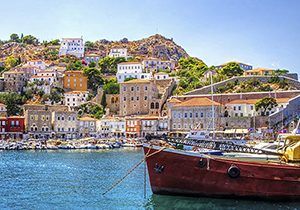
10 facts about Ancient Greece

10 facts about the Olympics!
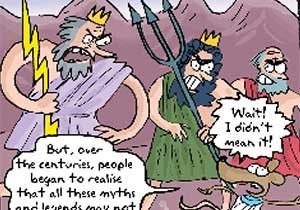
Max on Mount Olympus!
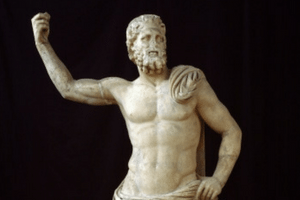
The Gods and Goddesses of Ancient Greece!

Sign up to our newsletter
Get uplifting news, exclusive offers, inspiring stories and activities to help you and your family explore and learn delivered straight to your inbox.
You will receive our UK newsletter. Change region
WHERE DO YOU LIVE?
COUNTRY * Australia Ireland New Zealand United Kingdom Other
By entering your email address you agree to our Terms of Use and Privacy Policy and will receive emails from us about news, offers, activities and partner offers.
You're all signed up! Back to subscription site
Type whatever you want to search
More Results

You’re leaving natgeokids.com to visit another website!
Ask a parent or guardian to check it out first and remember to stay safe online.

You're leaving our kids' pages to visit a page for grown-ups!
Be sure to check if your parent or guardian is okay with this first.
My Learning Lab:
Forgot my password.
Please provide your account's email address and we will e-mail you instructions to reset your password. For assistance changing the password for a child account, please contact us
You are about to leave Smithsonian Learning Lab.
Your browser is not compatible with site. do you still want to continue.

IMAGES
VIDEO
COMMENTS
Myths Examples. The Tortoise and the Hare: A tortoise, tired of the hare's boasting, challenges him to a race. The hare, confident of winning, takes a nap mid-race, while the tortoise perseveres and wins. This Aesop's fable demonstrates that slow and steady can indeed win the race.
5. Daedalus and Icarus. The story of Icarus is one of the most famous tales from Greek myth. Icarus was the son of Daedalus, the craftsman who built the Labyrinth from the Minotaur story recounted above. Ever the inventor, Daedalus fashioned some wings out of feathers and wax, for him and his son to use to fly their way off the island of Crete.
The ancient short Myth Stories contain many tales with morals (fables) that provided the old story tellers with interesting examples of simple but exciting tales of how to act and behave. These famous old myth stories also reflected important life lessons together with examples of morals and values exercised by the Roman and Greek gods and ...
Here are ten engaging examples of folktale stories for middle and high school students that are sure to provoke discussion in your classrooms! You can also compare and contrast the texts to better understand the difference between a myth vs. a folktale. "Welcome to the Underworld" by Michael A. Signal (6th Grade)
The Legend of Sleepy Hollow. Washington Irving. One of the earliest examples of American fiction with enduring popularity (especially during the Halloween season), this short story about Ichabod Crane and the Headless Horseman deals with themes of love, fear, gluttony, and truth. 12th Grade. Short Story.
Myths can be adventurous and daring, or heart-wrenching and sobering. Either way, you can browse through examples of these stories from around the world.
Here is an abridgment of 30 of the most famous tales from Greek Mythology. The Infant Zeus Nurtured by the Goat Amalthea, by Nicolas Poussin [Public Domain] 1. Theogony: Clash of the Titans. According to Hesiod's Theogony, in the beginning, there was only Chaos.
Allie Liotta. Explore different cultures with these stories from around the world! Reading myths and folktales is a great way to engage young learners. Since these tales were originally told to convey a moral or to explain an aspect of our natural world, they are perfect for students learning to determine theme and make text-to-world connections.
These short stories are based on myths, legends or folk tales, are retellings of these stories, or they are original myth or legends. The stories that are straight retellings of myths are in a separate section at the bottom. The stories that are based on a recognizable myth, are reinterpretations, or are originals are listed first. See also:
A myth is a classic or legendary story that usually focuses on a particular hero or event, and explains mysteries of nature, existence, or the universe with no true basis in fact. Myths exist in every culture; but the most well known in Western culture and literature are part of Greek and Roman mythology. The characters in myths—usually gods ...
Myth examples can open up a new world. Read about famous Greek myth examples to gain a better understanding of what's behind the stories of ancient Greece.
Greek Myths, Stories and Legends. This section of the site covers some of the most popular Greek myths, legends and stories of ancient Greece. Greek mythology is rich with stories of heroes and gods. One of the most famous stories is that of Orpheus, who traveled to the underworld to bring back his dead wife. He used his music to charm the ...
Greek mythology is a collection of stories and myths about the gods, goddesses, heroes, and monsters of ancient Greece. These stories have been passed down through generations and have become some of the most famous tales in all of history. Some of the most well-known Greek myths include the story of Demeter and Persephone, which explains the ...
Common Examples of Myth. There are many myths that are popular enough to be a part of cultural knowledge. Here are some examples of myths that are well-known: Icarus flying too close to the sun until his wax wings melted and he crashed into the sea. The Tower of Babel being created that led to the proliferation of different languages among humans.
The myths and stories of the ancient Greeks are some of the oldest and most well-known in the world. Greek mythology touches on a myriad of themes ranging from the world's conception to outlandish creatures to legendary wars. In this article, I list and discuss what I consider the 10 most impactful stories from ancient Greek mythology. ...
A story of the Sun, the Moon and an Empress all working together for peace. July 21, 2020 February 3, 2024. ... A multi-cultural collection of children's myths and legends from all over the world. January 24, 2019 February 3, 2024. 10 Min Stories 20 Mins+ Adventures Age 7-12 Heroes Myths Nordic Stories.
Myths and World Stories Myths of Greece, Rome, ancient Norse legends, and stories from around the world. Ancient Egyptian Stories. The oldest are the best. You may not have heard these fairy tales before, but they have some very familiar themes. Go to Stories -> Welsh
The Myth of Daedalus and Icarus by Ovid (11th Grade) When Daedalus and his son Icarus are exiled to Crete, they attempt escape by creating wings, fashioned out of beeswax. Daedalus warns his son not to fly too high or too low, but Icarus does not listen. The heat of the wax melts his wings, he falls into the sea, and dies.
Greek mythology, and its ancient stories of gods, goddesses, heroes and monsters, is one of the oldest and most influential groups of legends in human civilization.
Greek 'myths' (short for mythology) are a series of stories about the Gods and magical beings of Greece. We'll bet you've heard of some of the famous - and infamous! - characters already, such as Heracles, (the strongest man on Earth) Zeus, (the God of the sky and king of the gods) Pegasus (a flying horse) and Hades (the god of the ...
myth, a symbolic narrative, usually of unknown origin and at least partly traditional, that ostensibly relates actual events and that is especially associated with religious belief.It is distinguished from symbolic behaviour (cult, ritual) and symbolic places or objects (temples, icons). Myths are specific accounts of gods or superhuman beings involved in extraordinary events or circumstances ...
Creation myths, or origin stories, tell us what a culture believes about how humans came to be. They can also tell us much about what that culture values. These are often religious or spiritual explanations for human life. Choose one of origin stories on this page to focus on. Read, watch, or listen to the story.
From ancient myths, to folktales, to modern short stories, the theme of greed is a theme that appears throughout our library. Secondary teachers can assign these tales of greed individually, or ask students to compare and contrast the stories' similar messages about how people are driven by greed. Students will love dissecting these fanciful ...